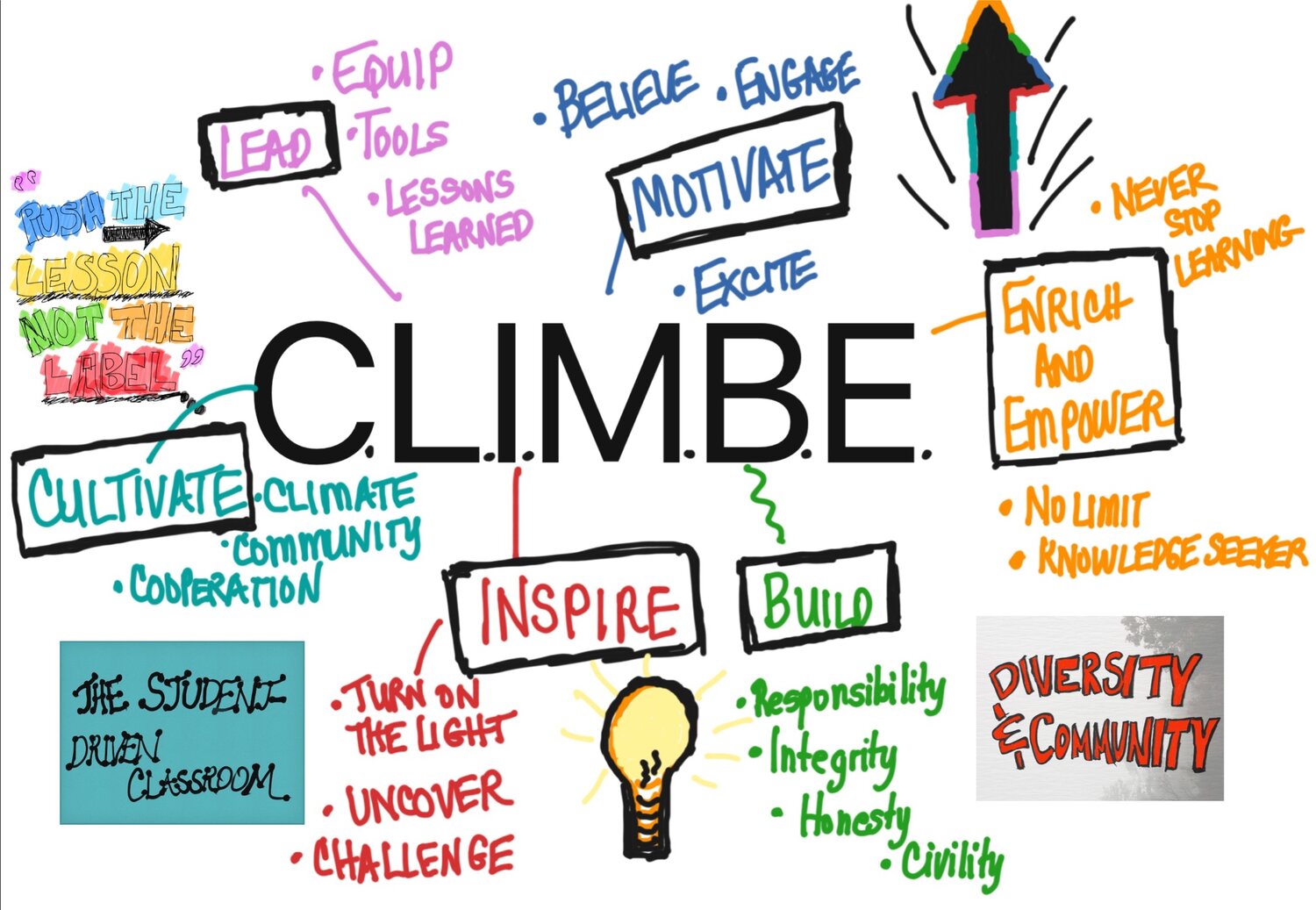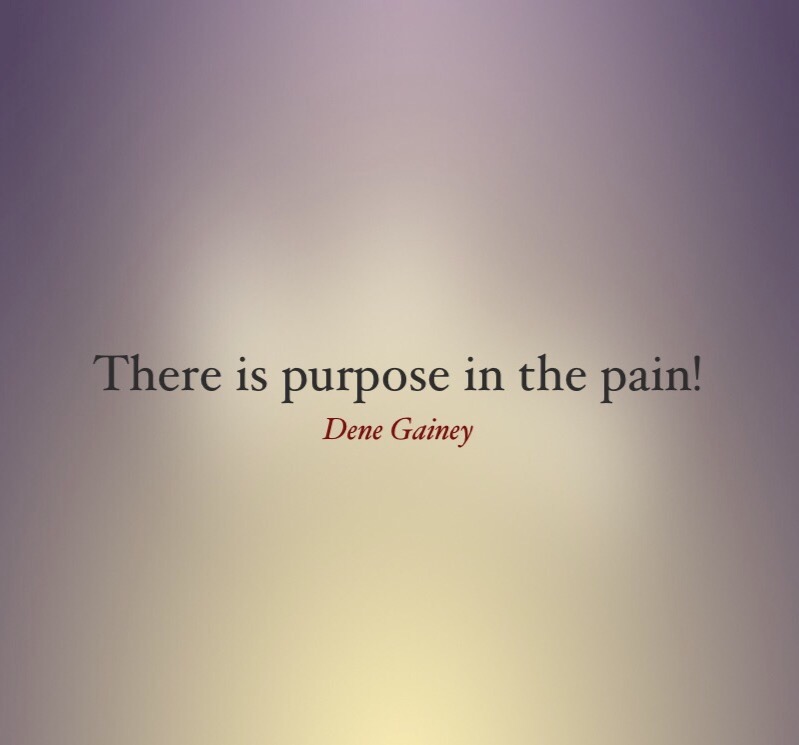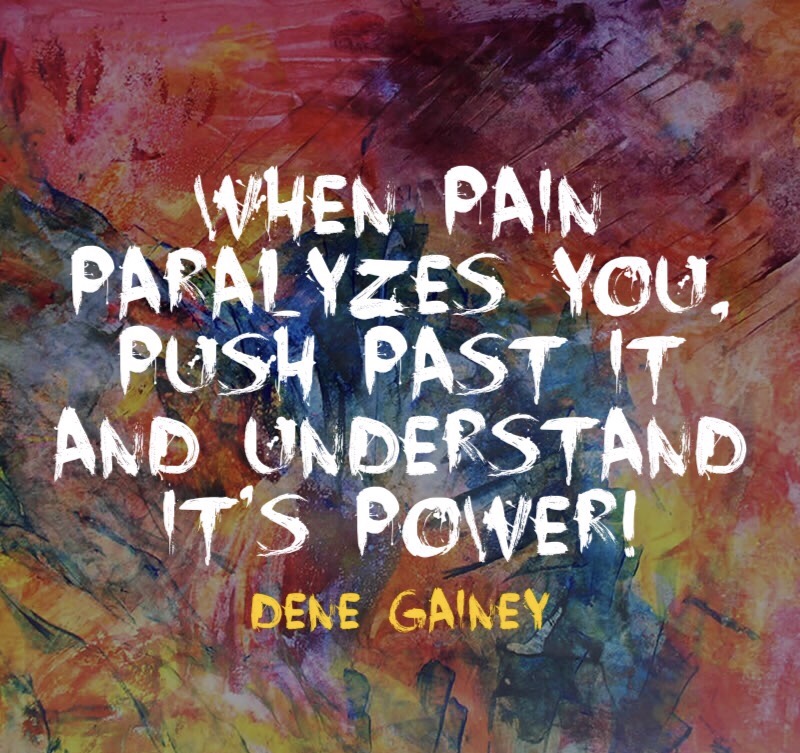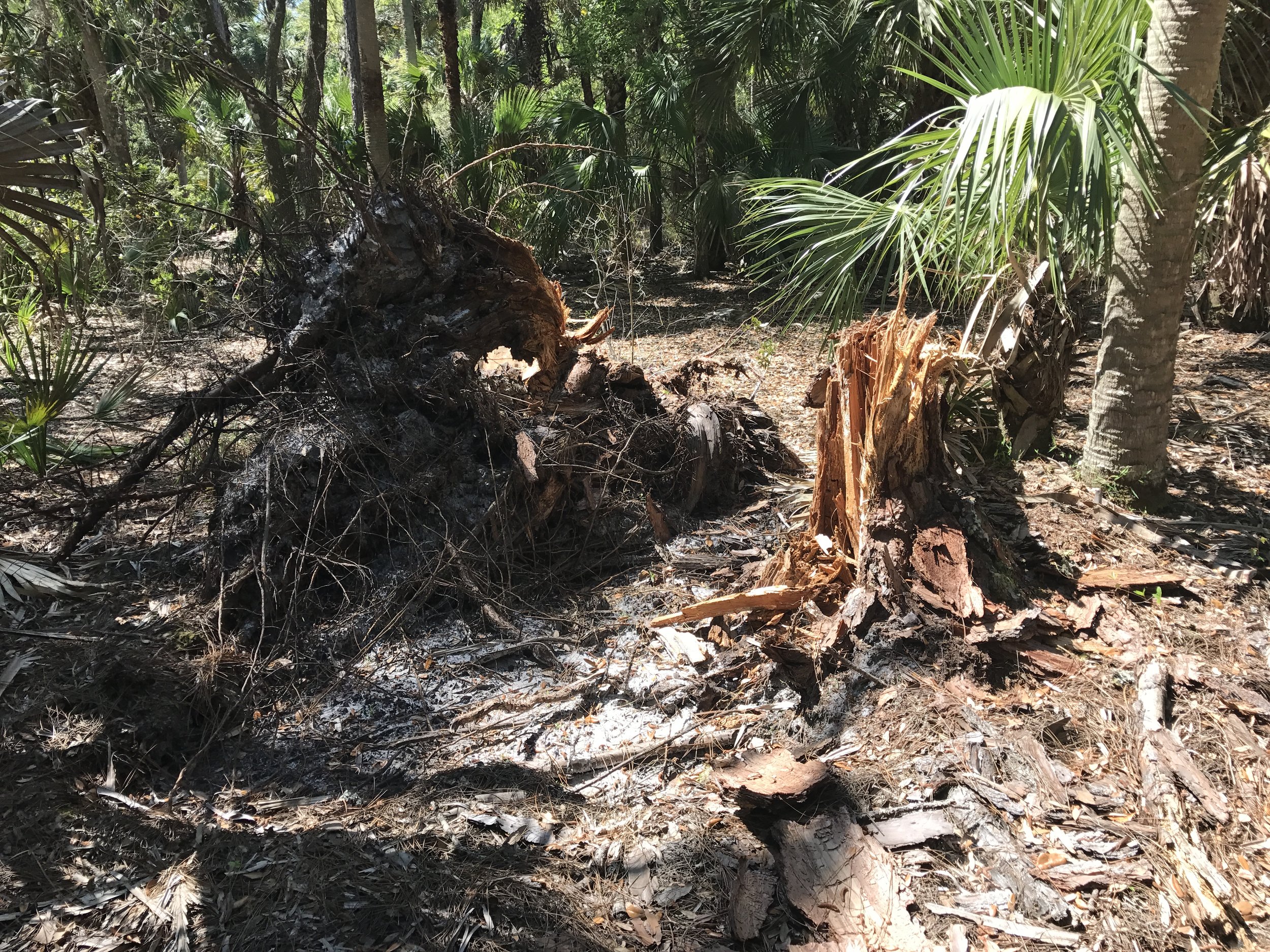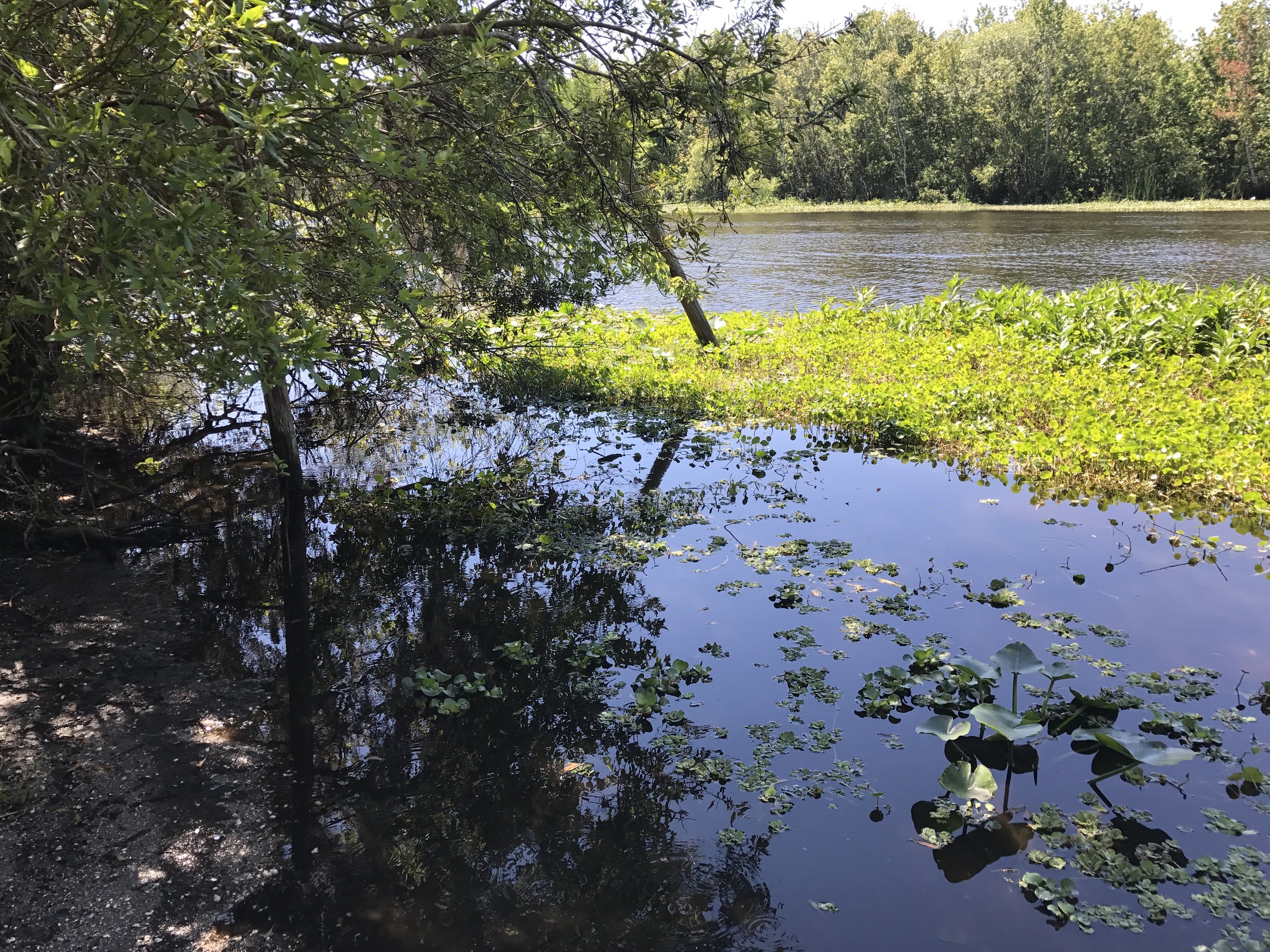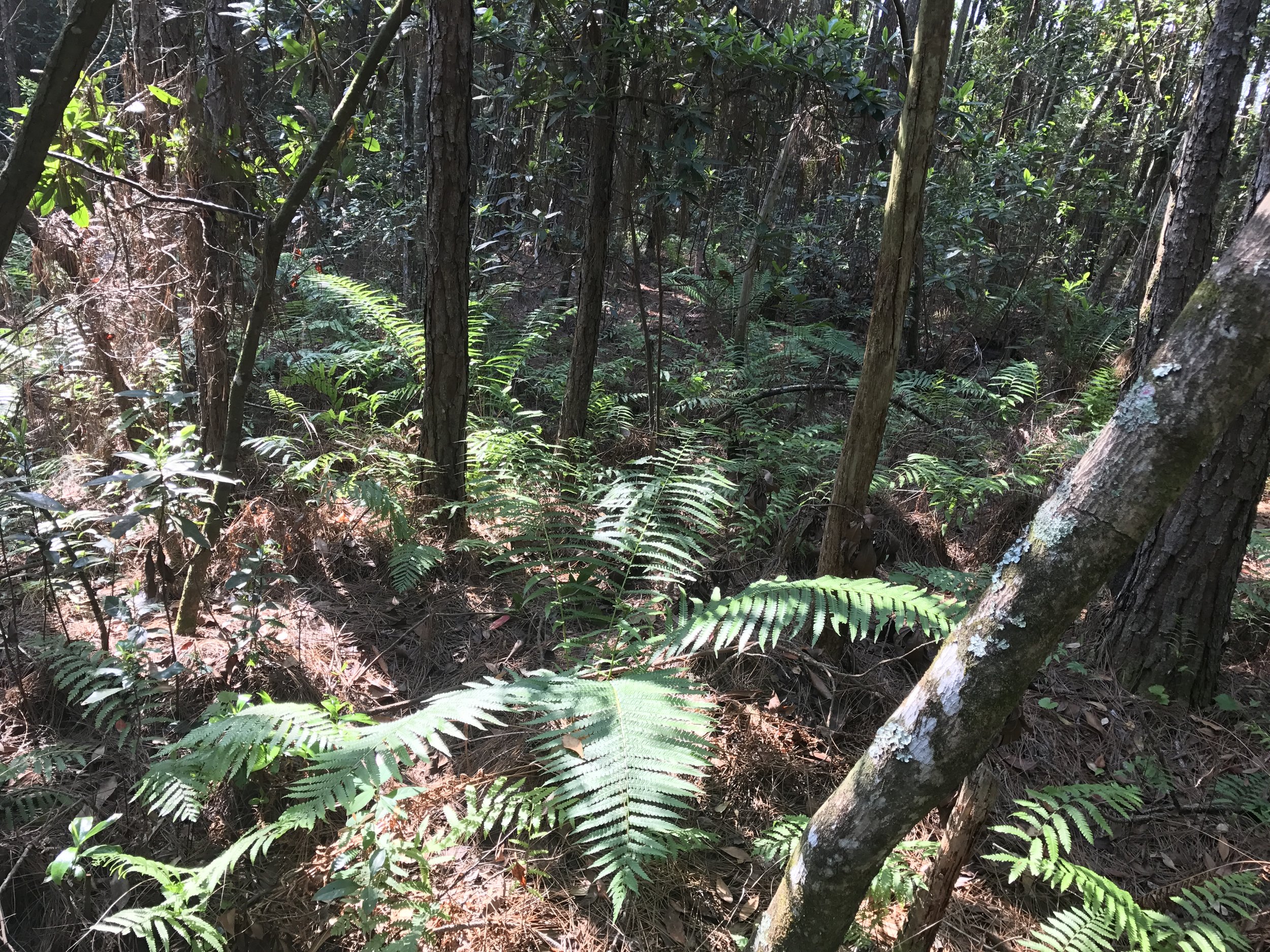Stand Up Teacher
Well, this is officially my first post of 2018. Times have been so busy that I had not had the grand opportunity. I recall about three years ago as part of a team-building exercise, I along with staff members at my school went to an improv comedy show. I'd never done it before and thought about the opportunity to laugh and decompress at an event such as this. Being that is was improv, I suppose I had no idea at the time that I could (or would) become part of the show. In fact, the topic had shifted to "pick up lines" and I was positioned as a judge to determine whose pickup lines were worthy of a thumbs up or a thumbs down. It was a lot of fun, I won't lie. I was nervous and had no idea how this would end but now I can say that I did it, had the opportunity and laughed a lot as a result. If it ever happens again, I won't be so nervous I suppose.
My point today is this...being a stand up teacher. I clearly stand up all day, and rarely sit down, whether at a table or desk. My feet tell me so at the end of the day, coupled with all of the walking and getting my steps in without any problems at all. This is not what I mean at all though. Challenging times and scenes today both in and out of classrooms seem to suggest a need for educators to be sensitive to environments, students and needs. This is not to say it hasn't always been important, but I have encountered many experiences this year alone where I have had to alter the course of travel for a class, for a week, for a student, for a group of students because the climate dictated a different way that day. I spend so much time planning and even learning in order to plan effectively. However I realize more and more that these lesson plans do not always go "as planned."
I'd learned about a strategy for teaching that includes drama, more specifically referred to as "Actor's Toolbox" which includes aspects of social-emotional learning as well as opportunities to teach students about those elements of themselves that are necessary in order to experience success in school. It further provides an opportunity for students to move, form randomized groupings for class activities as well as reinforce expectations.
There is a part of the Actor's Toolbox that includes a focus game that students love. The students move to a circular standing formation in the room when the cue is provided (music for our class). They "sign" the five-part contract that says they will be in charge of their bodies, their voice, their minds, their focus and finally cooperate with others. This is all done with miming or gesturing (drama). I then get the opportunity to try to distract them as they focus on a point on the wall opposite where they are standing. The goal is for them to remain calm, focused and balanced. Additionally, I like to ask students to point out any "strong" choices they observed other students do, such as moving quietly and calmly. We also discuss "weak" or undesirable choices made by students, like laughing while coming to the circle or running. This is such a powerful way to start our class and I really have seen students step to the plate and develop in maturity.
Actor's Toolbox is fun. I've had students group using the following statement: "By the time I count to 6, find yourself in a group that has an even number" (or someone wearing glasses, or someone wearing black, or having at least one boy). They can use non-verbal communication but are not encouraged to talk while moving into these groups. However once assembled, they might discuss a topic that comes to mind, like a book they read over the weekend. Or I might create a talking piece based on something we are learning in class at that time, giving them an opportunity to discuss it with random students (and those not normally paired with). I always follow up with sharing as a whole class a couple of the really great thoughts from the groups.
My point in sharing that example is that I have used it during times where there was clearly a need to "do something different." I use it almost every day as it is, but definitely use it to break up any potential monotony and in those times that the conditions call for something more. I feel educators are the great balancers and jugglers! Or at least we should be flexible and aware of the climate, which changes oh so frequently in order to meet the needs of the diverse learners that we all have in our reach. As I have heard many times, Maslow, before Blooms, because Blooms will be so much more effective once Maslow is in place.
Thanks for reading! Have a good one!
What are my 100 Words?
First thanks, Jessie Boyce for putting this little challenge out there. It's really a little HUGE challenge. I'd never thought about doing this before and here goes my disclaimer: This is probably one of the hardest things I’ve ever done, putting my joy of teaching and learning in 100 words.
My 100 Words on Why I Love Teaching
I love teaching because it is a perpetual process of learning & I am just as much of a student when I teach as the students themselves are. I love teaching because of the immense ability to “reach” and not just teach & to see lives transformed through that reach! I love teaching because little by little, the world can be changed for the better. I love teaching because of spontaneous discovery and the ability to empower students to C.L.I.M.B.E. There is nothing more beautiful than seeing students actualize themselves and take ownership and independence when learning.
What are your 100 words? I think it’s time to get writing!

Don't Stop Moving
I believe I read a quote at some point that said "If you try to make everyone happy then you'll never make anyone happy." As I constantly evaluate myself and place myself under the microscope, I am really that kind of educator that is all in. I am always thinking and doing something supports my professional role. It's like I live and breathe this educator thing. As if I was an educator before I was even born...and once I was, everything I did, good, bad or indifferent, led me to this point. I remember my first grade teacher who had supreme influence on me while I was a student in her class. I also went back to her classroom every day after school through fifth grade, to help her if she needed it. When I was off to middle school, I would still make it a point to head back to the school to help her in whatever way that I could. As a high school student, I began to track my volunteer hours since that was such a big thing and quite frankly I'd been involved a lot anyway. I went back to help her yet again, and upon graduation, was recognized as a member of my graduating class with a tremendous amount of community service hours. So this isn't the first time I've mentioned that little anecdote, but it is still a relevant piece regarding why I stand here in this position today. I grew up with high expectations, or in other words, those around me expected much from me. That said, as an educator, my expectations are also high, as it applies to those in my area of influence.
FullSizeRender 91
I do my best to check my intentions to ensure they are always genuine. In other words, I try to ensure that my actions reflect an awareness of self and a focus on others. I have come to realize that even when actions are genuine, the actions don't always please everybody. As an educator, it's not so much about the quiz or the project or the school year as it is about life, character and responsibility. So my actions, beliefs and overall philosophy is driven by this premise. Perhaps it's a "bigger than me" mentality. It's not about me, but it is about the lives of the those within my reach. And thus, I am always focused on who those people are or who they will be, not the here and now.
The truth is that not everybody will agree with you, believe in you, take the journey with you, or even support you. Whether that means family, friends, colleagues, administrators, parents or even students, trials come that they might make you strong.
FullSizeRender 93
However there was a reason this "thing" all got started, and thus there is a reason why it should continue. Obstacles, opposition and trials truly are all a part of the journey and I have come to know that by design, they are tasked with making us better. I would never have known the strength I had to get through something had that something never challenged me or came my way. You realize who you really are in the face of opposition. Opposition can of course come in many shapes and sizes. But I've learned to put the opposition under the microscope too. There are times I've asked myself "What's in it for me?" But the more I live, the more I realize that "Perhaps there is something I need in the opposition."
Philosophical at best, this post is just a reminder (to myself too) that even though there are times that we question why, and criticize ourselves (guilty), we can't stop moving. Funny that the song "Don't Stop Believing" by Journey is in my head as I finish this post. I almost titled the post that way. :)
#ISTE17 Captured.
So I decided to use Book Creator to "capture" the ISTE experience. After this brief introduction, you will find visual images with text that more closely capture the immensity of time spent in San Antonio. I am so grateful to have had the opportunity to attend such a conference. I don't think I'd ever seen so many educators in one place at the same time. It was noted by ISTE leaders that about 21,000 people were in attendance (including vendors) representing every state in the US and over 80 countries around the world. That's amazing right! I attended several sessions, those that were part of the #ISTE17 schedule and those that were not. Many learning events happened outside of the four walls of a room or session, yet that pushed me, motivated me, inspired me and changed me for the better. I learned a lot from sessions including: the @Newsela Certification Workshop (Sunday - starting things off), Getting Started with Swift Playgrounds (coding), Google Drawing - Going beyond the Drawing, Developing Natural Curiosity through PBL, The Power of Music for Learning: Garageband, Closely Reading with Thinglink, Real World Coding: Apple App Development, Digital Formative Assessment, and Virtual Poetry Slams. These of course were aside from the awesome keynotes delivered by Jad Abumrad & Jennie Mageira. I was not able to make the last one since I had to prepare to leave. Jennie Mageira was a POWERFUL keynote speaker who literally told stories that took you through a few emotions. Her delivery was quite impactful.
It was indeed an honor to meet many that I'd interacted with to some degree via social media, whether on Twitter, Voxer or other means. You have conversations and then you see that they are real! How amazing is that! Here it goes!
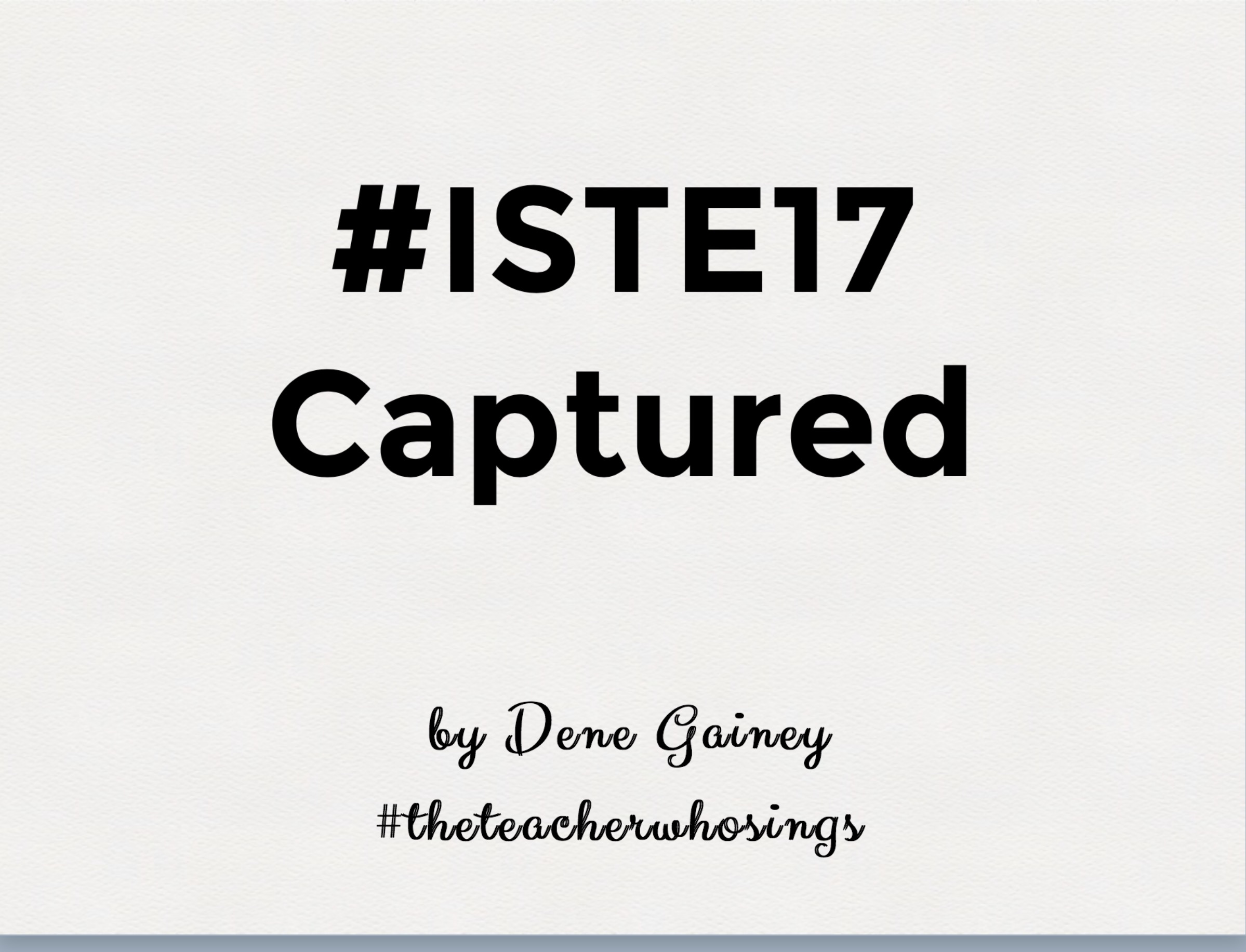
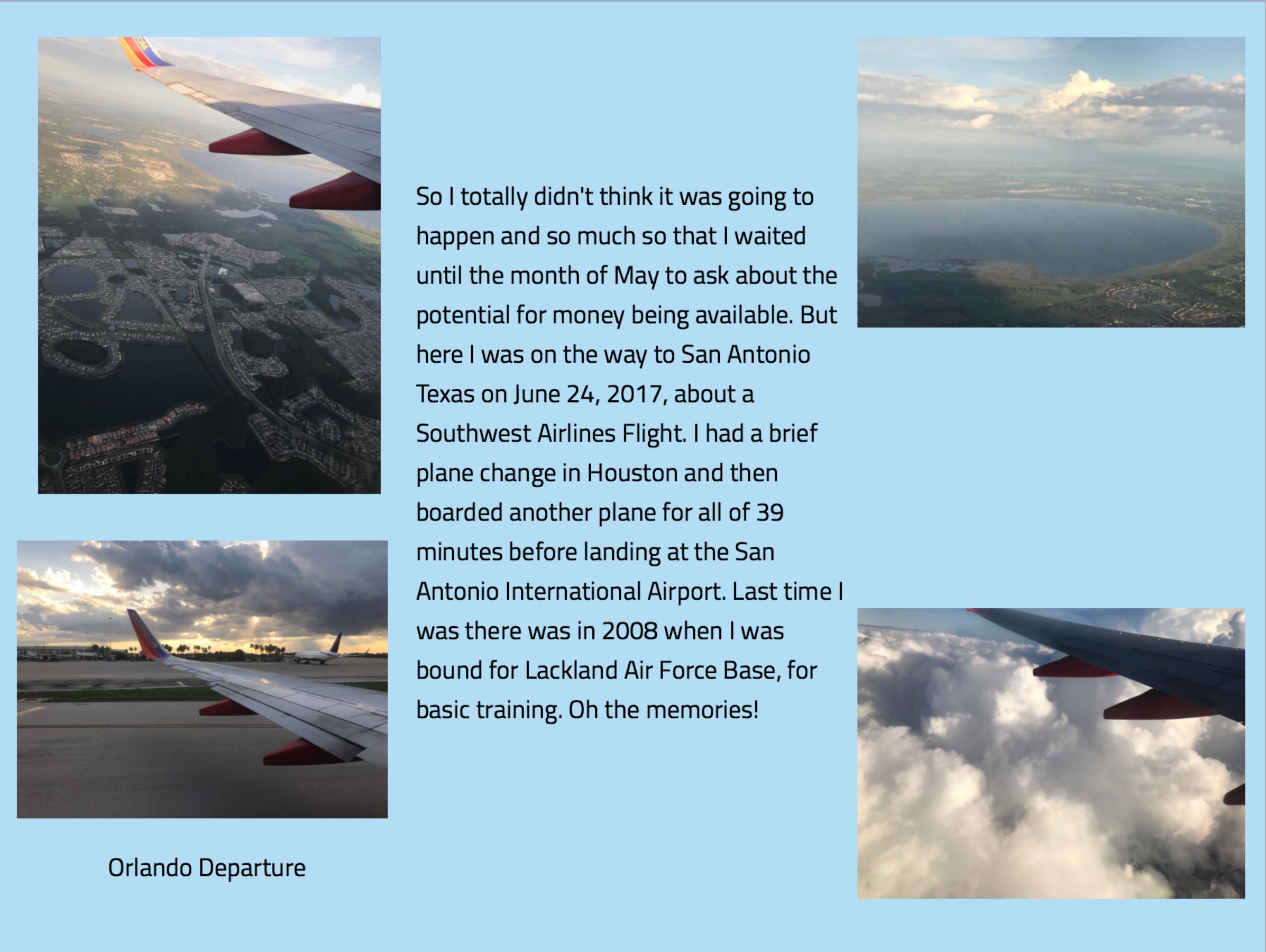
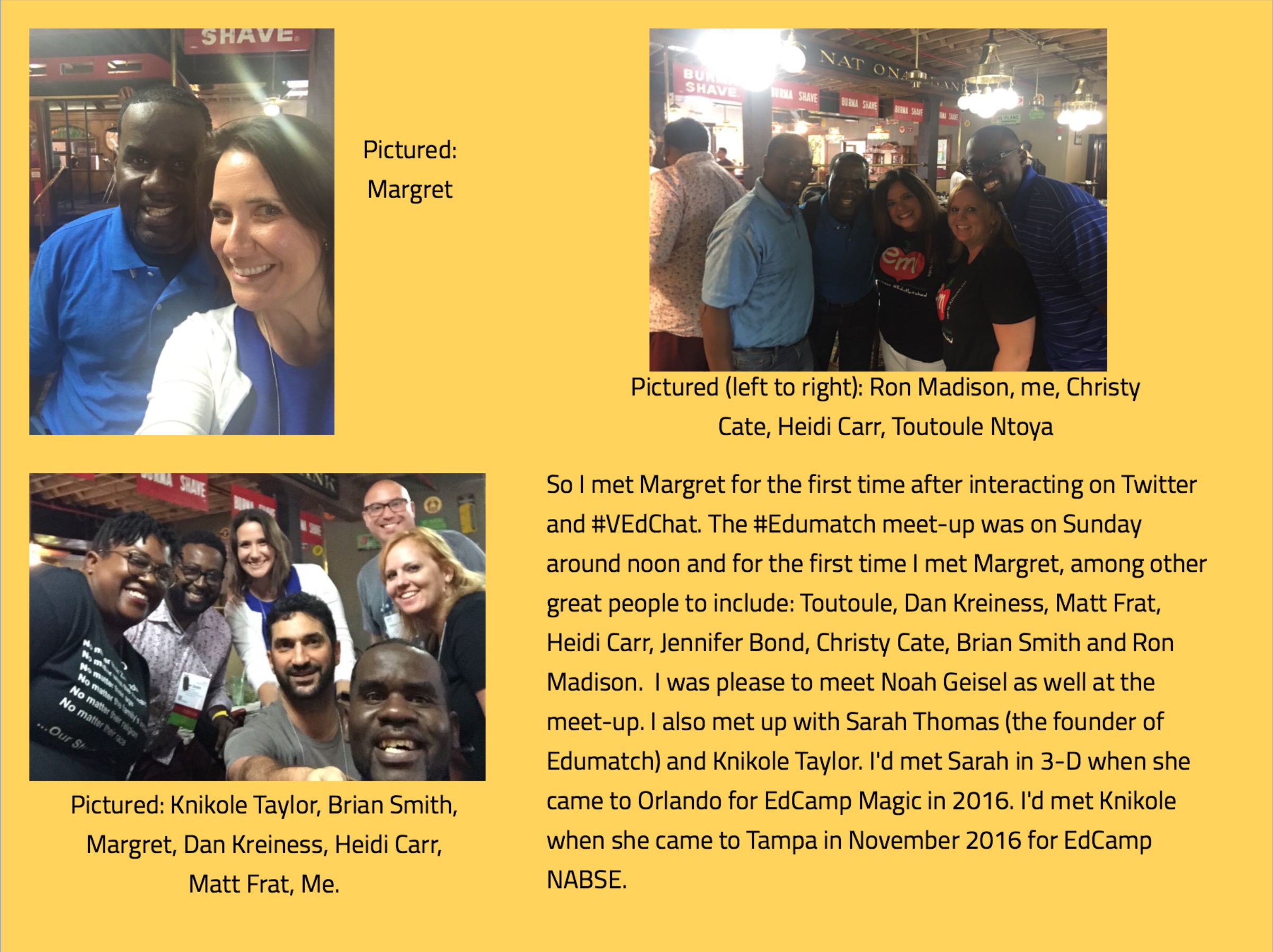
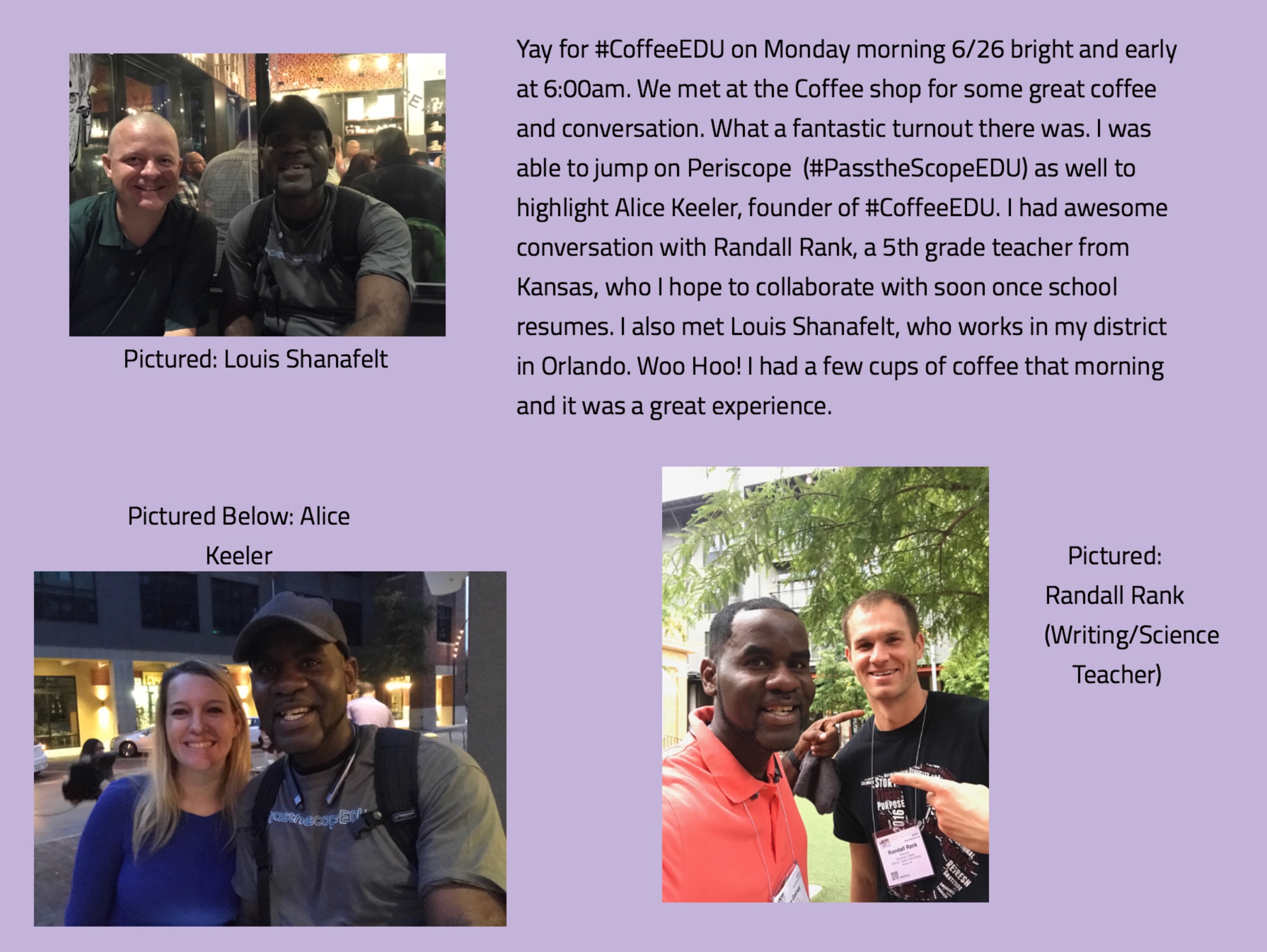

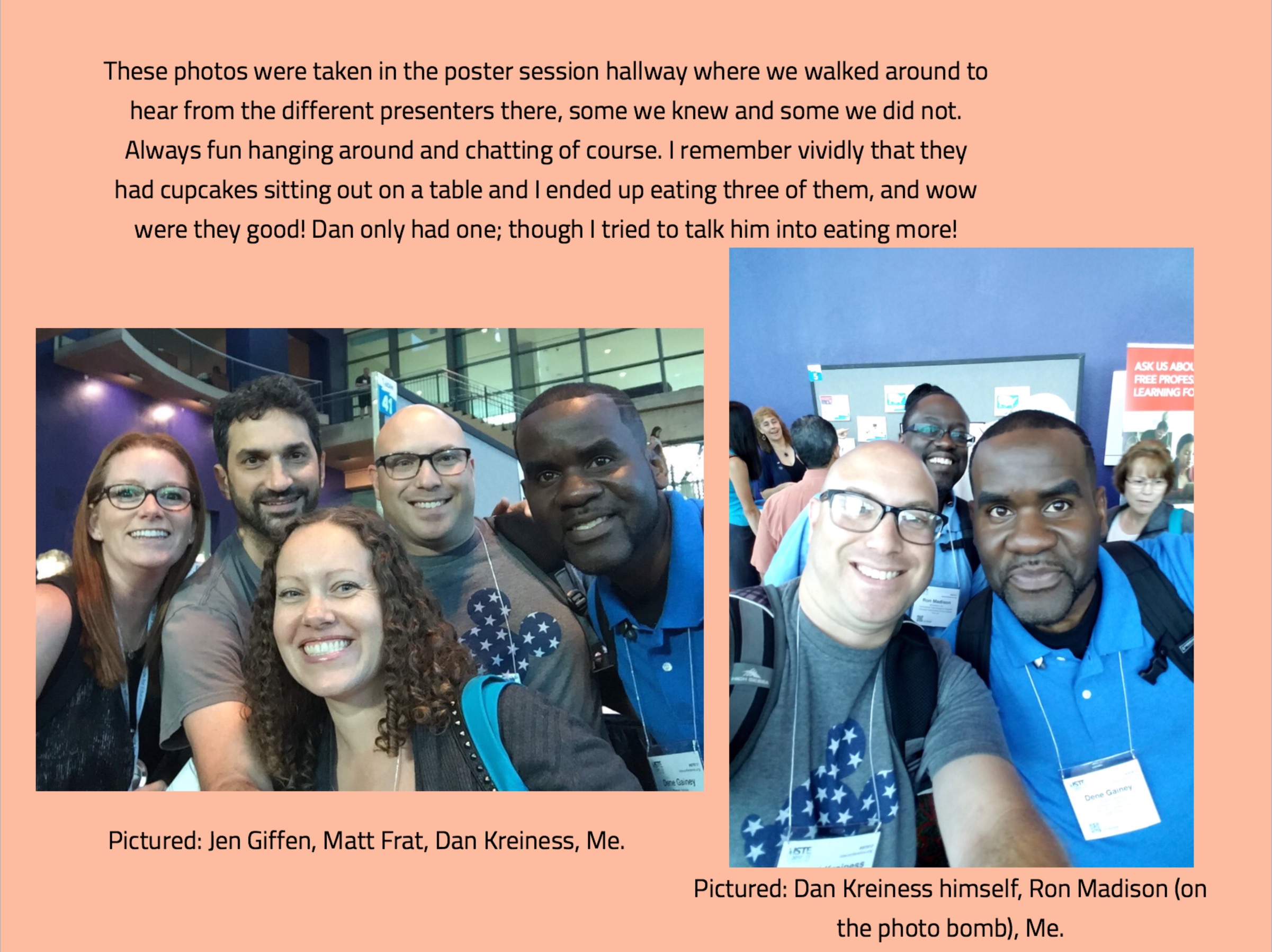
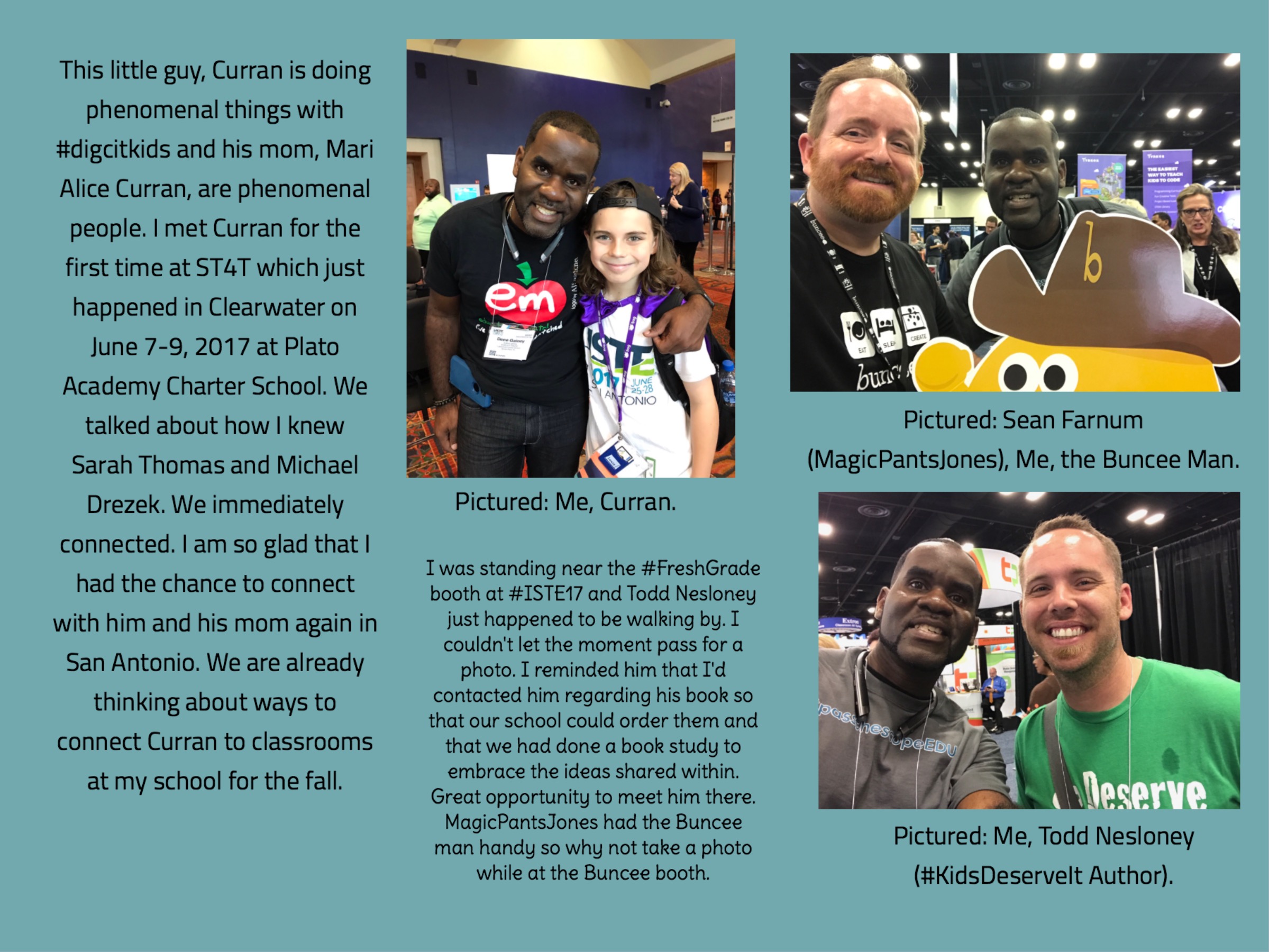
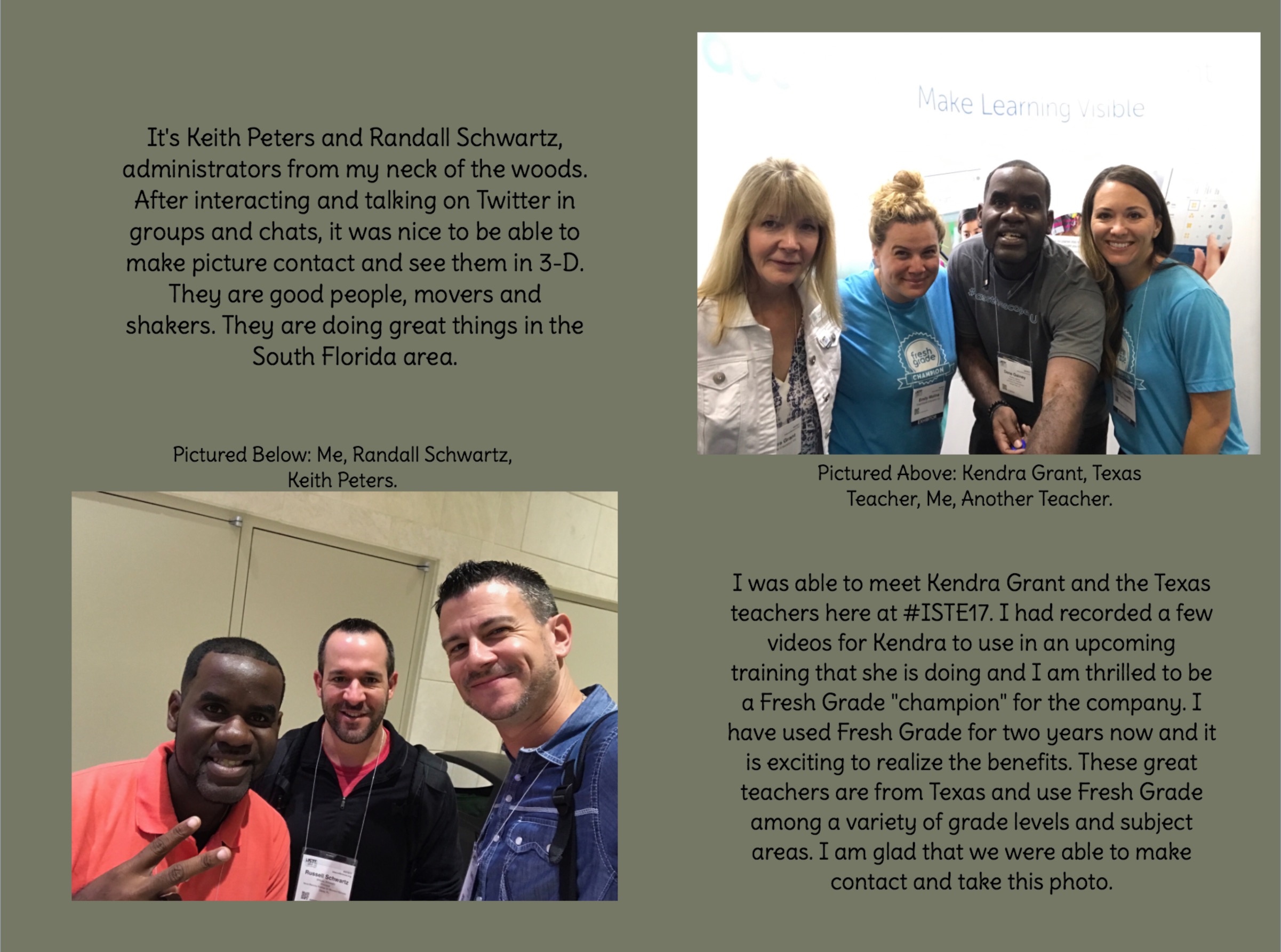
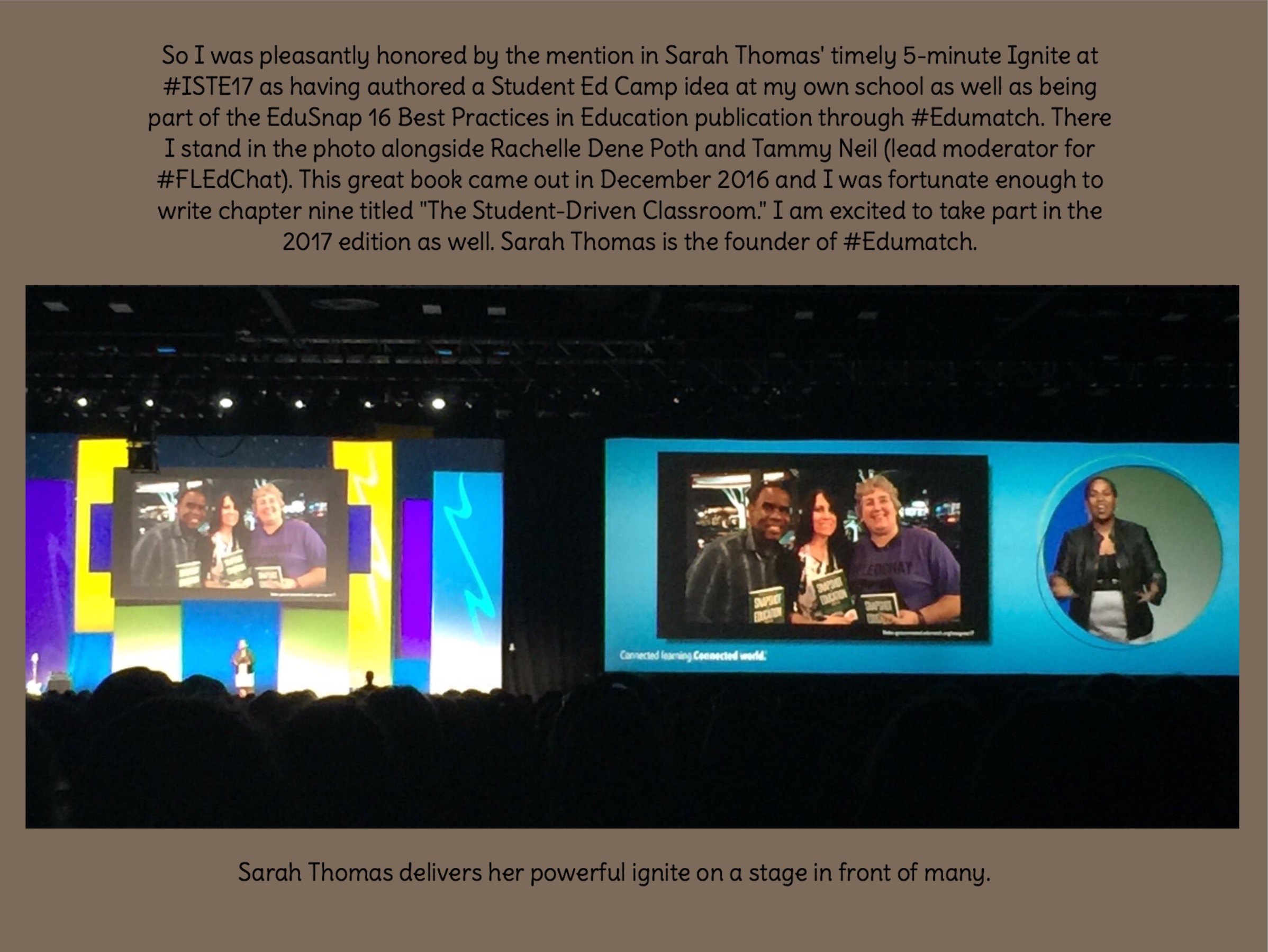
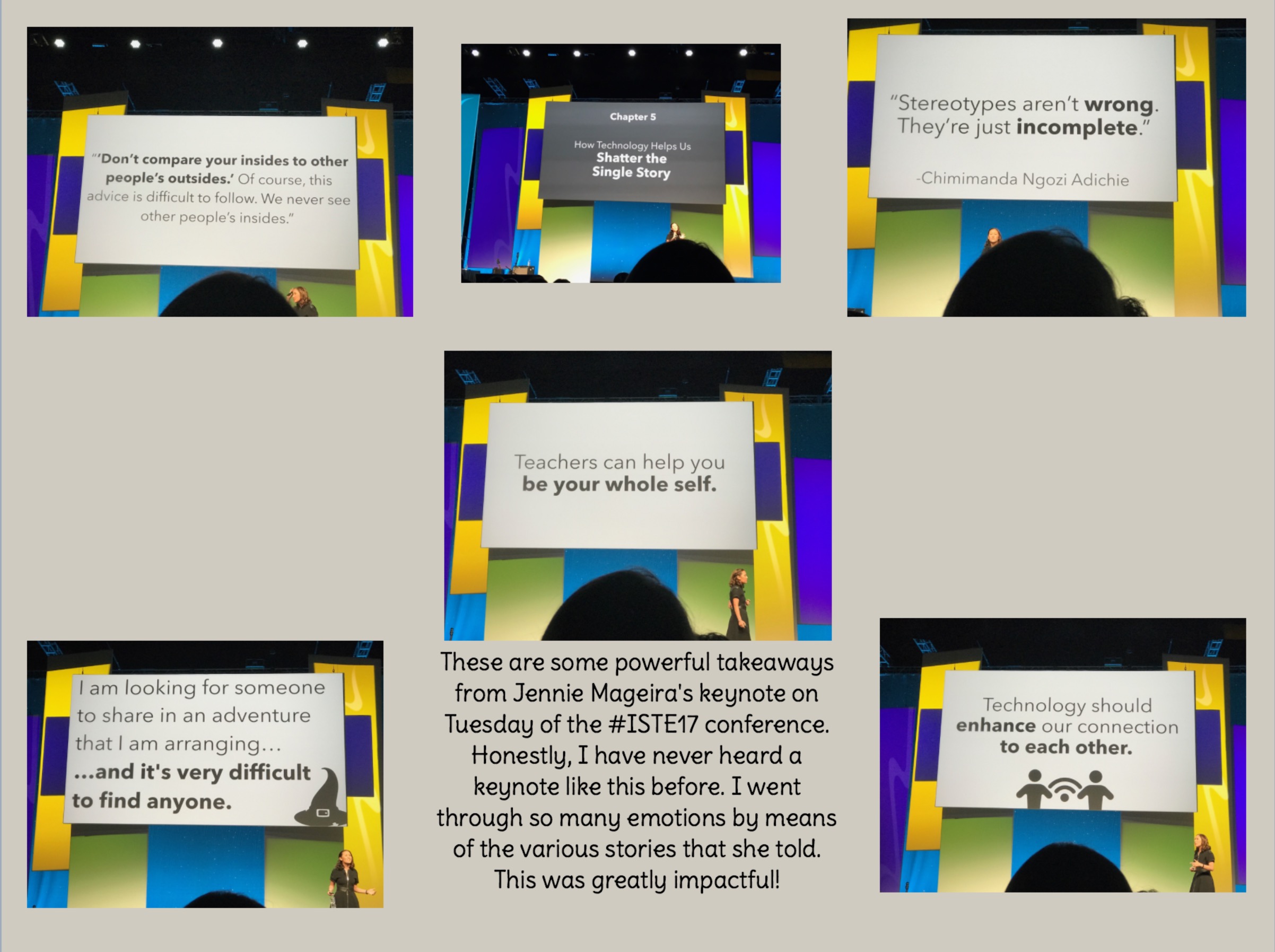
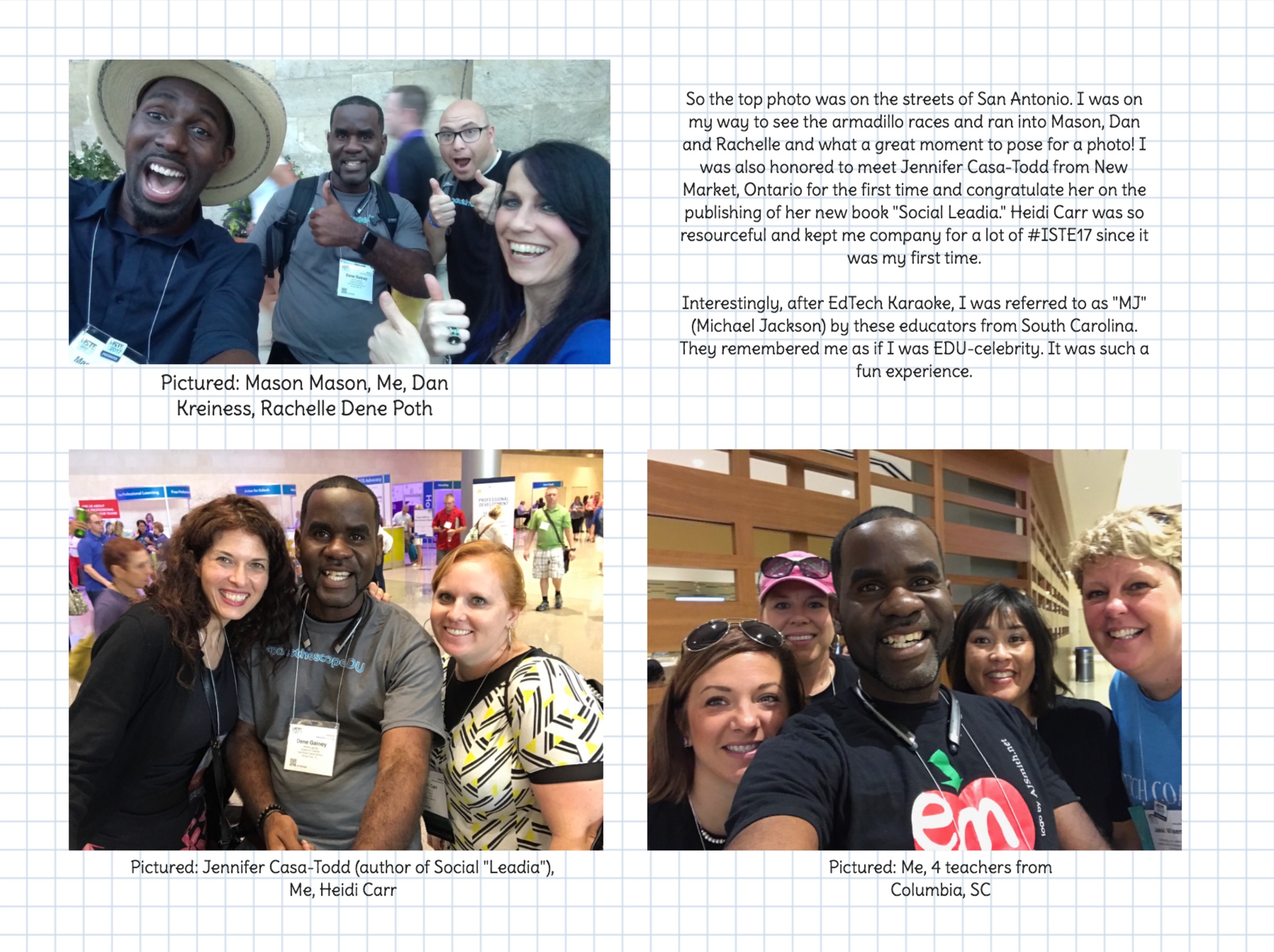
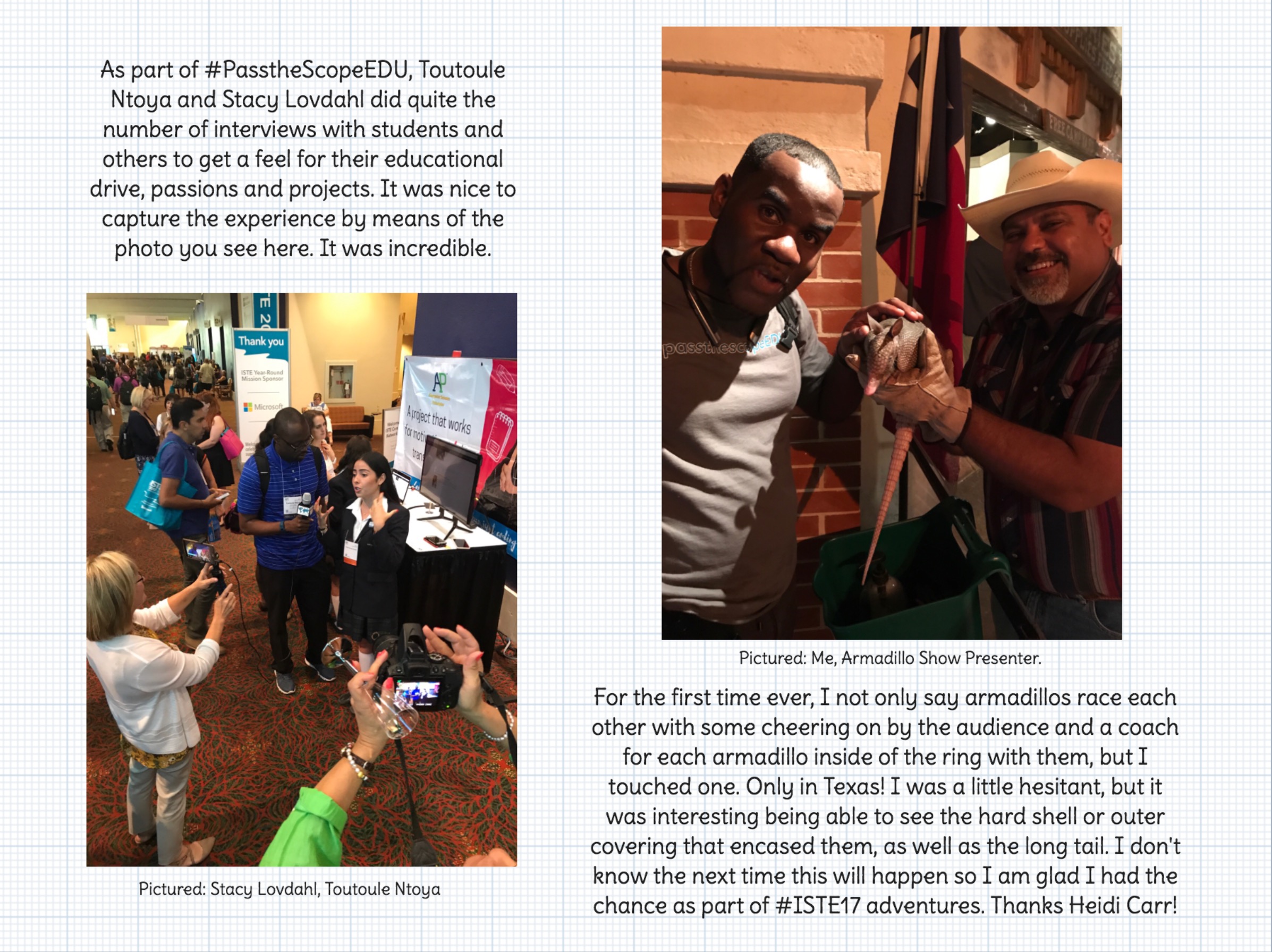

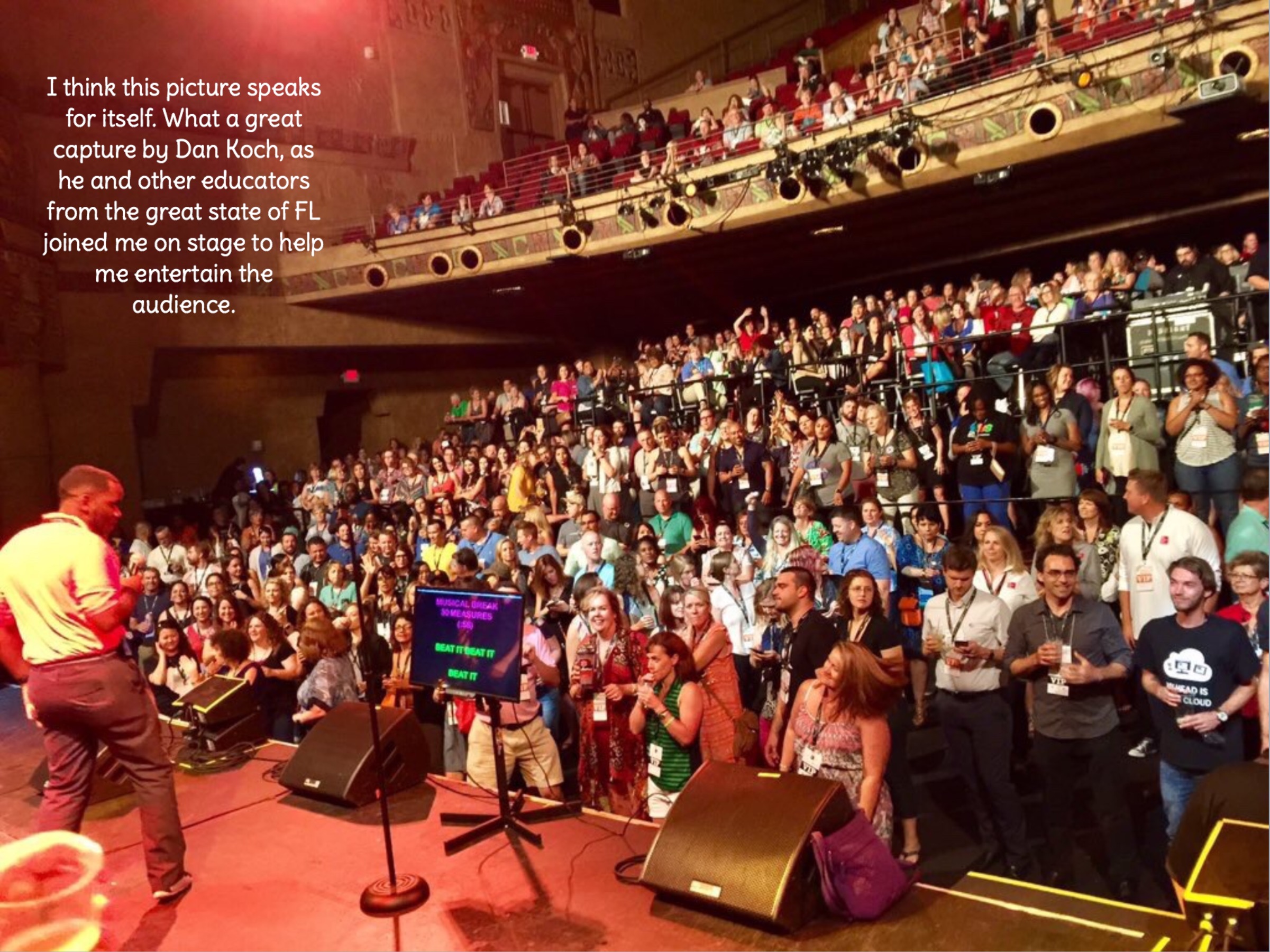


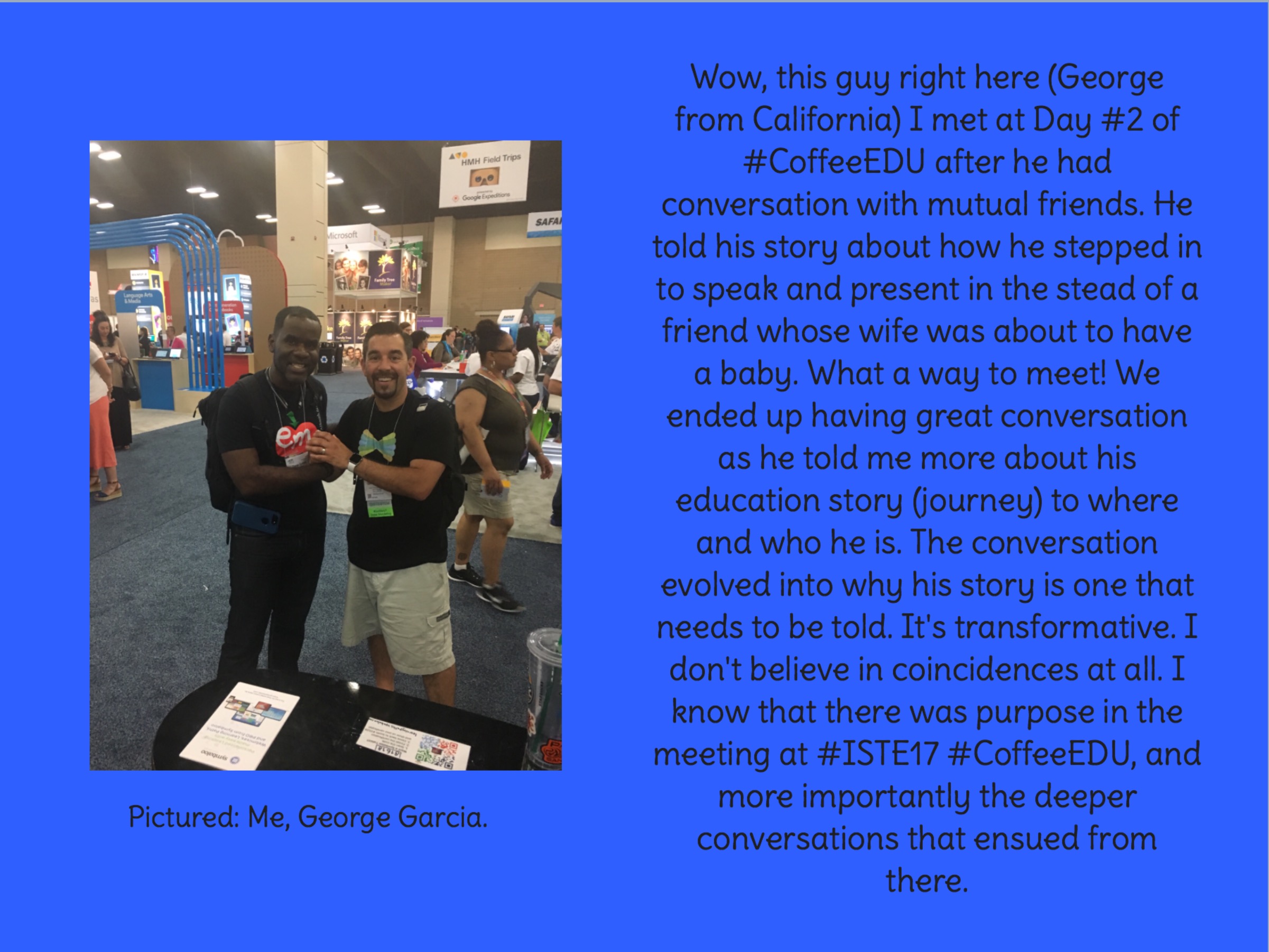

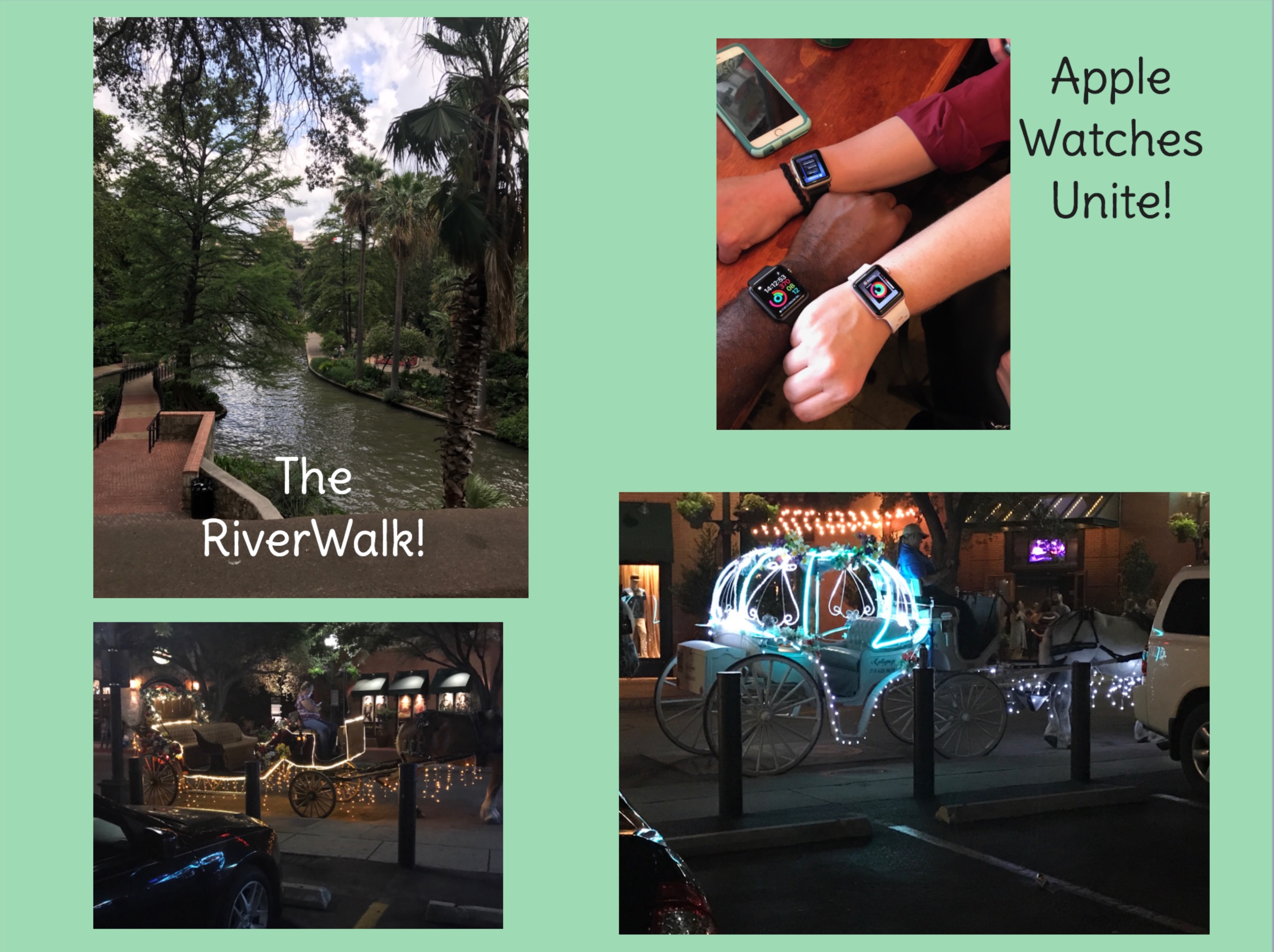
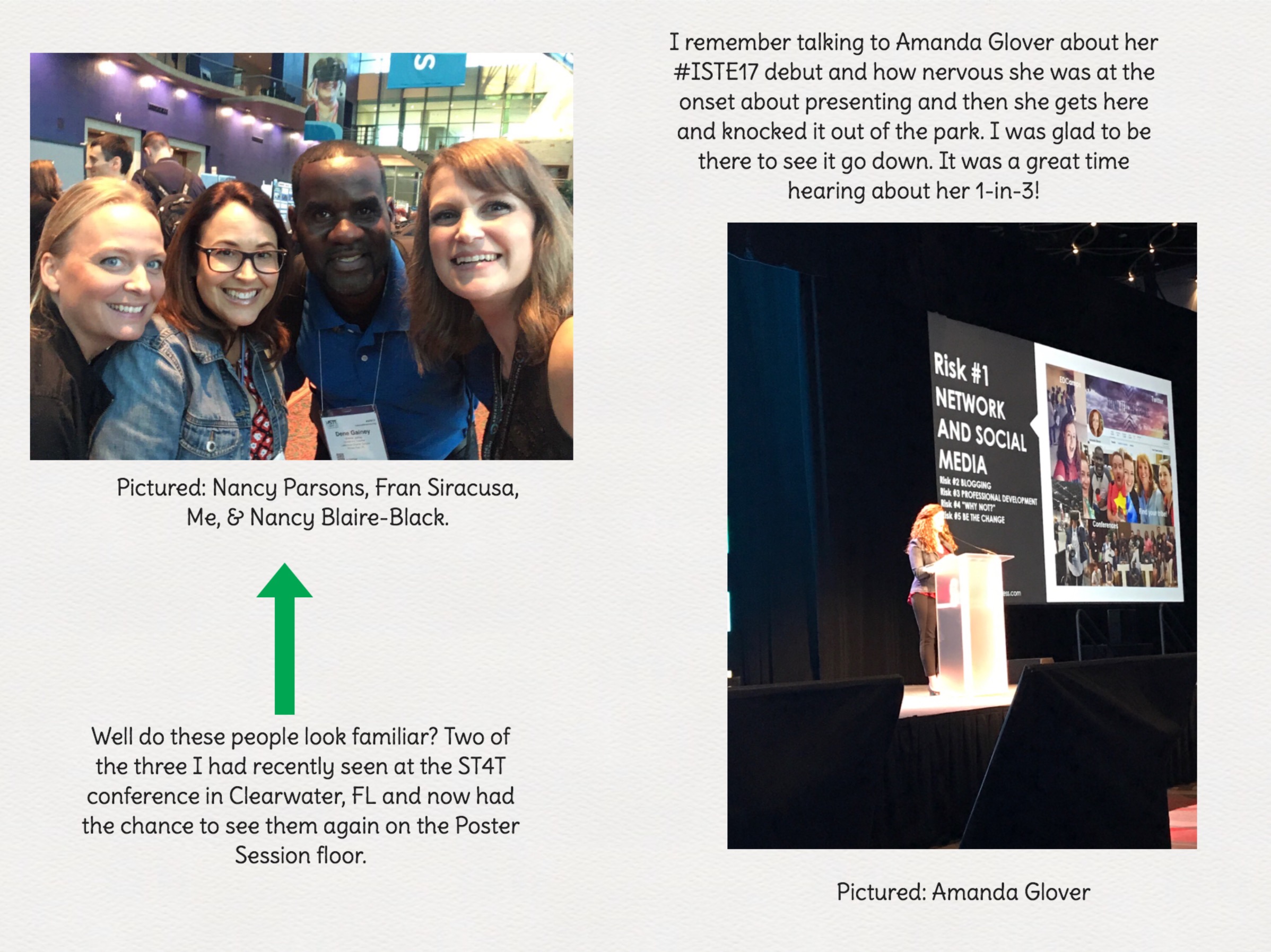

Challenges & Limitations: Are they the same thing?
 Challenges & Limitations: Are they the same thing? Can challenges lead to limitations? Can challenges open the door to opportunity?
This blog has been written as something to consider and maybe even open the door for conversation, inspired by nature itself. (Side note: there is much to be learned by observing and appreciating who and what we are surrounded by.)
Challenges & Limitations: Are they the same thing? Can challenges lead to limitations? Can challenges open the door to opportunity?
This blog has been written as something to consider and maybe even open the door for conversation, inspired by nature itself. (Side note: there is much to be learned by observing and appreciating who and what we are surrounded by.)
Are challenges limitations? I was watching a nature documentary recently, titled "Africa's Deadliest," I couldn't help but notice the sheer number of animals with physical and perhaps geographical challenges that may serve to box the animal in or by which we are able to identify the animal as it's species. For example, the crocodile is regarded as a fierce predator, who has intense bite force and is able to take out animals that are equal or larger in size. The water is where the crocodile's greatest strength is realized because of its ability to ambush prey, often by surprise as they draw closer by holding their breath underwater.
You might say that the water is the croc's livelihood. However, the crocodile's teeth are not designed to tear and chew it's prey once caught and suffocated. Instead the crocodiles must group together and rely on each other to tear prey and then swallow it whole. Not only that, crocodiles are sloppy & less balanced and effective while on land versus in the water. You might say that the challenges that the crocodile experiences are opportunities for them to capitalize on their strengths and/or cooperate with other crocodiles in order to accomplish the task at hand. Are these challenges experienced by crocodiles also their limitation? Well that depends on how you view it.
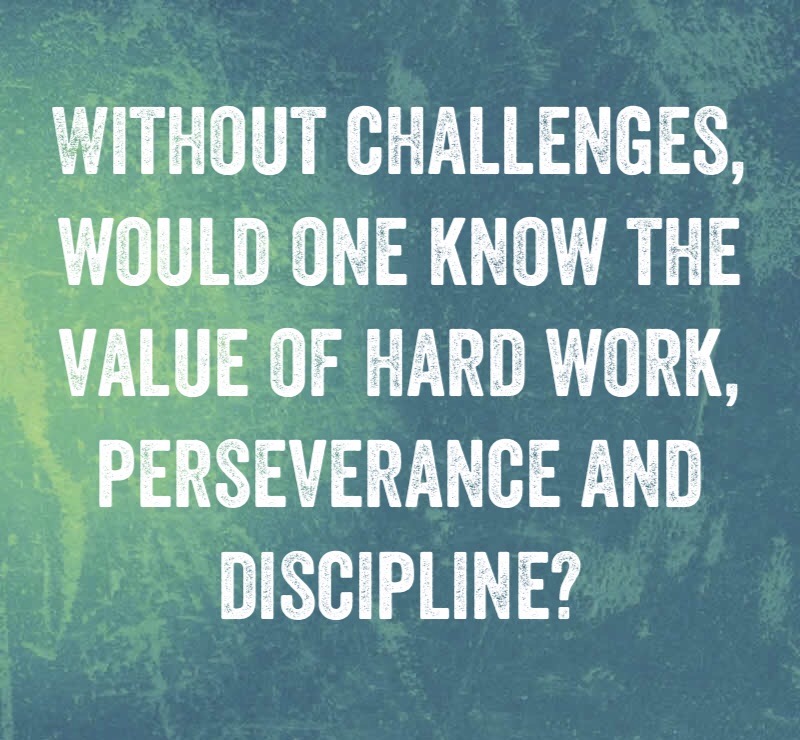 Let's take another example. The cheetah is hugely regarded as the fastest land animal on Earth reaching speeds of 65 miles per hour or more. This is of course a feature that enables the cheetah to attain its prey when it travels at intense speeds. Unlike its counterparts and related species, it is able to traverse distances in order to reach what may otherwise be unreachable. A drawback however is the need for cheetahs to recuperate after traveling at such immense speed before it can devour what it's speed allowed it to reach and overtake. In fact, the documentary identifies that the cheetah becomes so overheated that it is close to going brain dead after working so intensely to feed itself. If this wasn’t enough, the cheetah then has to deal with the lions and hyenas, opportunists, that pose a serious threat to the cheetah itself, not to mention its prey being stolen. Is the cheetah’s speed a challenge or a limitation?
Let's take another example. The cheetah is hugely regarded as the fastest land animal on Earth reaching speeds of 65 miles per hour or more. This is of course a feature that enables the cheetah to attain its prey when it travels at intense speeds. Unlike its counterparts and related species, it is able to traverse distances in order to reach what may otherwise be unreachable. A drawback however is the need for cheetahs to recuperate after traveling at such immense speed before it can devour what it's speed allowed it to reach and overtake. In fact, the documentary identifies that the cheetah becomes so overheated that it is close to going brain dead after working so intensely to feed itself. If this wasn’t enough, the cheetah then has to deal with the lions and hyenas, opportunists, that pose a serious threat to the cheetah itself, not to mention its prey being stolen. Is the cheetah’s speed a challenge or a limitation?
A third example is the Monarch butterfly, a delicate creature, faces more than one challenge in its lifetime. Of its challenges are habitat loss, pesticides and herbicides, and climate change. Starting out as a caterpillar, eating constantly, it has to undergo a complete physical change, only to have a limited lifespan once its metamorphosis has taken place. An average butterfly has an average life span of two weeks in which it must carry out its life obligations in order to ensure that generations behind it may carry on, survival in mind.
And so now we attempt to bring it home, to the crux of the matter, the reality of the world we live in today. We all have challenges, animals and human beings alike. We all have things that we face on the daily that we have the opportunity to overcome. If we sat here and thought long enough, we would be able to identify challenges for each animal and even plant on the face of the earth. All living things face obstacles and challenges that “challenge” the existence and survival of the species. Could we ask the cactus plant to stop sucking up water so that it can survive during the harsh times of drought? Could we ask the kangaroo to stop digging holes into the ground in order to cool itself in times of extreme heat? Would it be appropriate to ask the alligators and crocodiles to remain in the water so they do not threaten our existence on the earth? The truth is that challenges can be viewed as obstacles, but are not necessarily limitations at all. They are opportunities to be creative, adapt and find ways to conquer what could have conquered you. We fill continue to face challenges but we do not have to allow those challenges to keep us from moving forward in the best way possible. 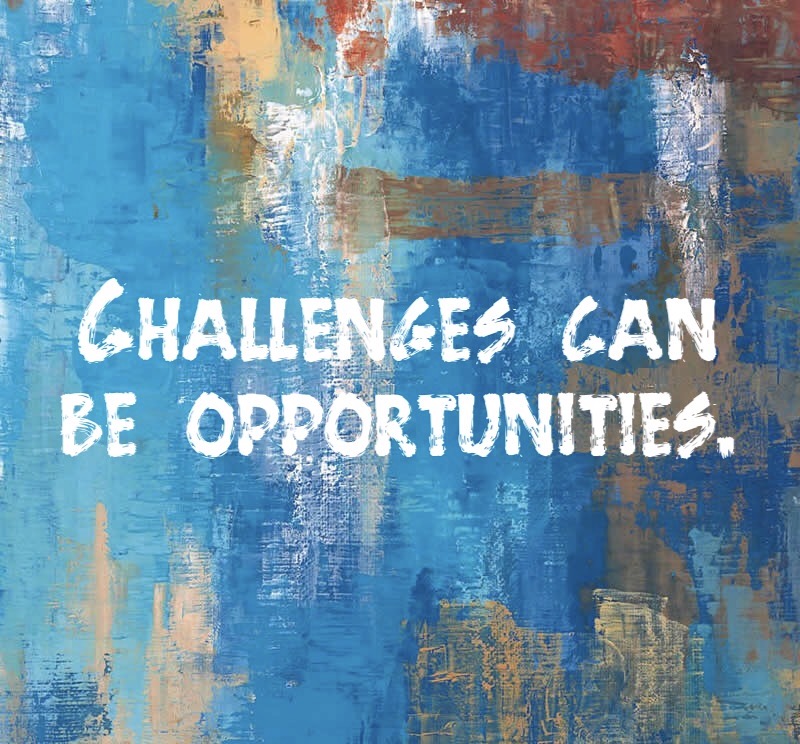
So let’s think about education and the roles we have. Our students. Do they have challenges? You bet they do! We as the educators face challenges as well. Our students have various backgrounds, cultures, experiences, values, morals and beliefs that may not necessarily line up with the next person. Does that mean they are any less valuable? Of course not, but perhaps these challenges are opportunities to learn how to embrace and celebrate the various aspects of our world that make it unique and diverse. Where would we be without challenges? We’d never learn how amazing the world and those therein truly are without challenges. We’d never see the bravery if there was nothing to fear. We’d never know love, if rejection wasn’t a reality. We’d never see the stars if they didn’t shine in the middle of darkness. We’d never know the opportunity ahead without the challenges that propel us to pursue with patience that which lies before us! Turn your challenge into an opportunity, don’t let it limit you.
I'm All Ears.
"The most important thing in communication is hearing what isn't said" --Peter Drucker
Now the above quote is the type that really reaches out and grabs me. Consider for a moment that listening helps you to understand what is missing or rather what can be added to a conversation. Is anyone really listening to you when you speak? Do they even care enough to stop talking or doing, long enough to listen to what you have to say? That is the question of the day. When I listen to you, it means that I care about what you have to say and that I am allowing you the space, the time, the platform, or the opportunity to share it. Sounds easy right? 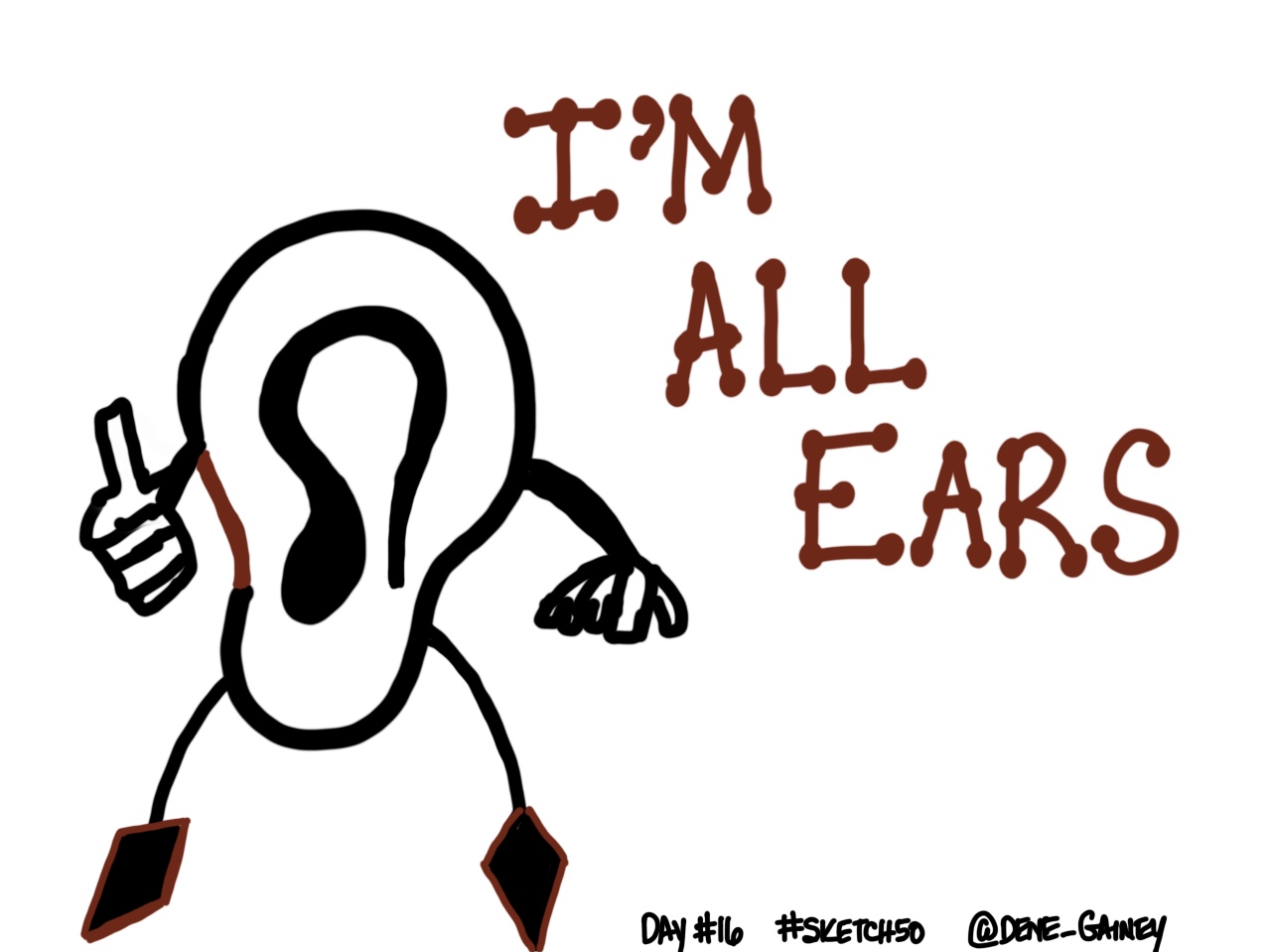
Is there truly anything to be gained from talking and never stopping to listen. I’d heard someone say that we have two ears and one mouth (Epictetus) The more I consider it, the more I realize that there is such value in being one who listens, or in fact, is slow to speak. I can attest to the fact that I have learned so much simply by listening to people, without ever having to utter a word.
My dad had always been slow to speak. But when he did speak, his words commanded the attention of all those in his vicinity. You might say that was due to his profession, his family or his wisdom. I submit that it was due to his decision. I question today the value that is placed on positioning yourself so that you can hear from someone else, "truly." All too often, the experience as been the opposite, where we talk constantly, or even without regard for what someone else may have to offer.
As an educator, one considers the students that he or she teaches; I definitely do. Naturally in a classroom where learning is to take place it requires both listening and speaking skills. Is one more valuable than the other. Perhaps not, however, they do have equal relevance in the day-to-day expectations of a teacher.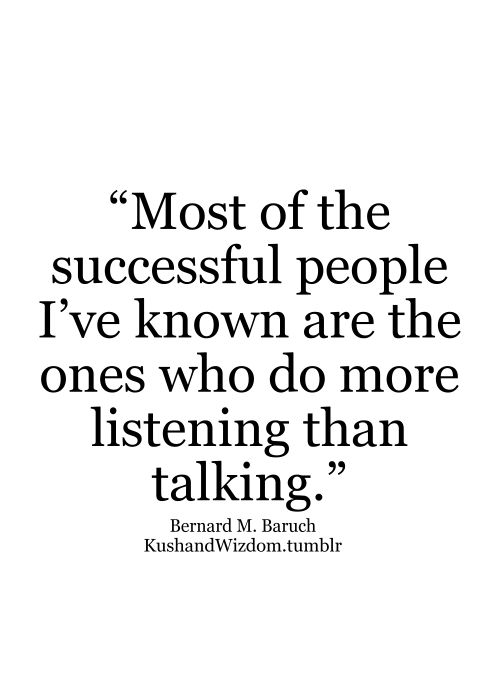 This is of course not limited to students listening to a teacher, but students listening to other students. Listening is an important skill for all. Surely I cannot truly expect my students to listen if I don't model that, or walk it out in front of them. I'd rather be the example instead of a hypocrite.
This is of course not limited to students listening to a teacher, but students listening to other students. Listening is an important skill for all. Surely I cannot truly expect my students to listen if I don't model that, or walk it out in front of them. I'd rather be the example instead of a hypocrite.
They all get excited about sharing. They are all engaged in the process of speaking, and will take every opportunity to talk to others. But what about the listening piece? How do you teach students about the inherent value of being a good listener? How might you model being a good listener for students such that he or she (the students) can understand that if they listen, they can earn greater understanding of an idea, but at the same time, consider a respectful and sound response to what they have heard?
So together, listening and speaking form a conversation. And the conversation is one that has value because the participants are involved in both the listening and speaking components. What would change if we all made it a point to be better listeners? And by so doing, what we are able to add to the conversation is both impactful and relevant, furthering the learning, rather than taking from it. Does listening make you a pushover or "weak?" Not at all. I believe it truly means you understand and respect others when you can see value in their words. We all have experiences. We all have stories to tell. Dare I say that we can all benefit from someone who will listen? Dare I go further and say that listening will change not only the life of whom you're listening to, but your own as well? Someone listened to me. I've not been the same since.
Guest Post @soperwritings: Cultivating Classroom Culture
Without a proper classroom culture, are we really making the most of teaching and learning? Check out @SoperWritings to get his take on things!
Your Pain is not in Vain - Take #2
Your Pain is Not in Vain, that it what the intent of this post is to convey.
Would you have ever thought that as a teacher or maybe just as a person who happens to be a teacher would ever experience pain? No way! Not in the education profession. If I were to poll the population in question I wonder what results would find. Now I'd say that this is not a topic that I enjoy talking about at all but I've had a revelation. Pain has a purpose. Pain is necessary for you to first identify that there is an issue somewhere whether physically, mentally or emotionally that needs attention. Second, pain is a reminder of the imperfect creature I am. It says hey Dene, here is a challenge for you that if you overcome it, has the unlimited potential to make you more than you were, or improved from yesterday to today.
What is this pain?
Pain just like people, comes in many different shapes and sizes. It doesn't favor anyone but has the ability to land on us all. So many times I've wanted pain to end, but as I continue to exist on this earth I acknowledge a different perspective of the pain. The pain helped me. The pain reminded me. The pain grounded me. The pain hurt me real "good."
When my father passed away from this earth I didn't know what I was going to do with myself. In my mind, my dad (and mom who still lives) was the reason I strived and kept going and moving. I emulated them and cared so much about their approval and affirmation. My dad was my strength and when he left me; I felt like Samson (the Bible character) that my strength had been wrongfully taken from me. Nevertheless, my dad was ready to get the heck out of here after having raised seven of us to be productive contributors to the society in which we live. He said give when people take. He said smile in the face of adversity, and it will come! He stood strong when others decided to sit down. He rescued me in times I knew it was impossible. He was in essence the hero that with my mother are the reason I live and breathe air today. Thus, when he took off I felt like I didn't have that wind beneath my wings anymore. In retrospect, I wonder if that's why he took off, because the pain of his departure propelled me into the purpose that he often spoke of in conversations I'd had with him. He believed in me when I didn't know to believe in myself or what to believe. So imagine the pain and devastation of a strong father saying goodbye to this life? Well I had to understand and embrace the pain within this situation. Why? Because there was something to be gained from the pain. If my father was here today, he would say I don't know why you're crying, get up and do what is in you to do! Strength came in the pain of my father who was "half" of my strength, moved on to a better place. So I've fully embraced the conversations I recall having with him, so much so that I passionately pursue them in the knowledge that he knew me! He knew I could, and now I can see it for myself! That's not to say that I still don't have doubts but the pain reminds me that yes, I can, even when the odds say I can't!
As an educated black male, the pain, the stigmas and the burden that I carry to bring change to eyes blinded by untruth, injustice prejudice and stereotypes that would suggest that I'm not good enough, or the realization that people look carefully when I walk into a room because they are unsure of who I am, or to allow me the opportunity to be who I am without first passing judgment on me. That's painful. It's a pain that shouldn't be but even in that, it's a pain that has benefits. You say I'm "this" but I am "that." To parents that have qualified me as illegitimate or unworthy of operating in the capacity in which I do, to those that are naysayers that have attacked the very place in which I sit and stand, that's painful. It's true. But at the same time, there is a thank you somewhere inside of me. I am more aware now and because of it, I go harder. I work harder. I strive harder, despite those that for whatever reason diminish your capacity with their thoughts, words and deeds. It's pain that I endure because I know that someone may look to me as an example of pure love, genuine care and concern and a peacemaker, just like my father.
I don't wanna (yes I said wanna) be perfect. I want to work on continuing to make myself better. Perfection assumes that I've learned it all, seen it all, done it all, and that there is nothing more to strive for and achieve. I've learned to revel in my imperfection and despite the pain of the moment that may reveal weakness and may cause you to be embarrassed around others who may be better than you, or perpetuate themselves as such, it is an opportunity to identify where you may be weak and work toward making yourself (myself) better than I was the day before. I'll never stop trying to be more, do more, at every chance I get. I'm not what I've gone through. Tomorrow isn't promised so the pain, as hard as it may be to accept at times, is necessary for life and certainly not in vain.
So if pain greets you at the front door, know that it has value and shift your perspective to the place where you can see that value and use it to be better than you were prior to the pain.
That is all.
Guest Post @soperwritings: Cultivating Classroom Culture
Cultivating a Learning Culture that Empowers Students
As a middle school social studies teacher, one of the very first things I teach my students each year is a unit on culture. Sure, the concept of culture is first up on my curriculum guide, but the overarching concept of culture is something that is essential to setting the tone for a productive year.
We begin the unit as most would expect: we define culture, we identify our own cultural markers, and we examine the cultural makeup of key civilizations throughout history.
But then we take a turn. I shift the conversation from cultural identification to cultural activism; we look at how the problem of cultural extinction is rapidly changing the face of our world. The students engage with stories from the past and from the present about how real people are faced with the challenge of carrying on and preserving cultures that are fading away forever.
For my students, the culture unit is no longer about defining cultural elements, it becomes about cultivating and preserving cultures in the face of increased globalization.
This may seem like a heady ask for a room full of 12-year-olds (…and it is), but by infusing a sense of agency into the learning, students buy in. They aren’t learning because they have to, they engage because they have a felt need to learn. By learning about culture in this type of classroom environment, I am setting the table for a classroom culture that will empower my students to be active learners.
Empowered learning is engaged learning
This trend of trying to motivate students to learn from an intrinsic place can be truly challenging. I have spent time as a part of a Learner Active Technology Infused Classroom (LATIC) cohort over the past three years that has worked to try to bring about this fundamental shift in our respective classroom pedagogies. It’s a lot of work, but it’s important work.
The studies are out there, but any educator who has had the experience of watching a student or even an entire classroom of students chasing knowledge knows the impact of a learner-driven environment.
In order to do so, whether it is in a classroom or a small group tutoring environment, there are a litany of considerations that need to be made:
- Students need environments that are differentiated and choice-driven.
- Students need meaningful task statements and unit rubrics to help guide students through their choices and growth.
- Students need access to technology and resources to be able to pursue their self-driven learning.
- Perhaps most importantly, students need authentic assessment experiences where they are expected to engage with real world issues. After all, learning without a goal or any potential for true impact will come at the expense of student buy-in.
The educator as a resource rather than the tour guide
Again, this type of pedagogical approach takes a lot of work. There’s no denying that. But when students are the ones running their own show, it frees up the educators to facilitate learning on a one-to-one or small group level rather than trying to apply a one-size-fits-all approach.
In an era of increased automation and privatization, the best educators are the ones who are able to create meaningful connections between students and content. No computer program or software suite will ever be able to do that!
By front-loading the preparation efforts to create student-driven experiences, the relationship between educator and student can be tailored on the fly to help create true understanding and engagement. These are the classrooms of the future.
Sheldon Soper is a ten year veteran of the teaching profession and currently serves as a junior high school teacher in southern New Jersey and as a writer for The Knowledge Roundtable, a free tutoring marketplace. His primary focus is building reading, writing, and research skills in his students. He holds two degrees from Rutgers University: a B.A. in History as well as a M.Ed. in Elementary Education. He holds teaching certifications in English Language Arts, Social Studies, and Elementary Education. You can connect with him on Twitter @SoperWritings.
Celebrating Diversity & Building Community
IMG_1040
This blog post is partly in response to an extremely intriguing and moving conversation at EdCampHCPS on Saturday, April 1, 2017, and no, it wasn't a joke! Haha. Aside from that, it has played an essential role in my own beliefs and practices as an educator. Thanks to Zac, Alex, Amber, Bryan, Nik, and Maria. What an awesome conversation we had!
I was so fortunate to have been able to attend EdCampHCPS this past Saturday and not only that, but be able to facilitate a session or discussion or conversation about this topic: "Celebrating Diversity and Building Community." I find it important to start with a the why of celebration and building, but further, to identify a working definition for both diversity and community. I believe we are blessed to live in a world that includes different types of people whether those differences are realized through gender, race, culture, language, opinion, viewpoint (perspective) and life choices even.
This is an important conversation to continue to be had. Is there a mold that students are expected to fit in when we really are all different with different backgrounds and experiences that must be taken into account because it makes us who we are? Is there a mold that we as educators are expected to fit in? Are we being asked to change the very essence of who we are rather than attempt to understand & celebrate diversity? The discussion ensued that students are often stripped of their diversity when we expect them to be who they are not, or to fit a predefined mold. How often do we as educators enter the classroom and assume this position: "This is how we do school," even unintentionally? Consider how we limit the learning experiences of students when we choose to intentionally or unintentionally expect every student to be the same.
Suffice it to say we were able to start the conversation at #EdCampHCPS, but we were far from ending it at the time that we were scheduled to move onto the next session.
Thus, the term diversity seems to encompass a whole lot more today than may have been identified years ago, or even captured by dictionary definition. How do you define diversity? Merriam Webster defines diversity as: "the condition of having or being composed of differing elements OR the inclusion of different types of people (as people of different races or cultures) in a group or organization OR an instance of being composed of differing elements or qualities." Why is diversity, specifically celebrating it so important? Melissa Etheridge qualifies diversity as our greatest strength as a nation but furthers her thought to suggest that it too has the power to break us down when we choose not to see the value in it and how it has the power to build bridges, fill gaps and connect us."Diversity is not judging a situation before trying to understand a situation."
Everybody has their own piece of the pie and the pie becomes whole when all of the pieces come together. Or consider the puzzle, if you will. Everybody has something valid to say, but we need to be open to hear it!
IMG_1232
Diversity: the art of thinking independently together. I must say that I agree with these sentiments because I do not see how we will ever lose our difference. However, I do see how those differences can not be capitalized on when we choose to stay separated. We can be different and we can be together. Let's embrace our "different" while we sit at the table together.
IMG_1228
When you think about Dr. Martin Luther King's words here, you can see that though we all have stories, his goal was to bring change to serve the greater good. My perspective is that when we shift our focus on bringing change at this great a scale, it ultimately affects everyone anyway, including ourselves. It does not see us as separate and disconnected, but rather connected at the very core, and only separated due to viewpoints that have not come to the table of "together." What I mean is that there is great value in our own individual perspectives and viewpoints, but there is an immense power when we can bring those all together and reason.
IMG_1227
Where would we be without our ability to see. Let me be clear though, it is possible to be able to see and yet have no vision. We need a call to action. We need to not only understand the why of diversity but also things that we can do in order to bring change to our current understanding and fully move forward with the vision of understanding the role that each individual plays and the power that is created when all of these individuals have the space and time to come together.
IMG_1231
I think it is highly important for students to learn about other type of people, other cultures, others' backgrounds because when this can happen, we can understand for example, why people do what they do and understand how this new learning can improve the individual. I am better when I know a little Japanese, because I then can communicate with Japanese people. The wall or barrier that would have limited me before is removed when I am able to immerse myself into the learning about others that ultimately builds a bridge where there was once a gap.
IMG_1234
How do we take what could rip us apart and translate that into something that revolutionizes us? Melissa Etheridge's thoughts here really make me think. I find it to be amazing that this understanding or lack thereof can build bridges or tear them down. I have personally been in situations that as a black male I am looked upon as someone out to hurt or harm, when truly that could not be farther from the truth. Stigmas and stereotypes exists and often I feel the burden on my shoulders to be the antithesis of what we currently experience. I think this is a perfect example for how we may judge a situation prematurely rather than being open and willing to connect with people, because there is certainly a strength that comes when we take the time to be intentional about understanding and knowing that everyone is not the same, but that they may have an experience that will change me, or make better.
IMG_1229
So on the topic of student support, I believe that we must first learn about our students and their needs before we are able to support them. How are students best supported? Do they all have the same support needs? The answer is no. I believe that it is time well spent when we first understand that yes, we are different and ultimately when we are able to affirm the difference in students, the quicker we are able to use those differences to benefit everyone.
IMG_1636
Involvement is essential. We cannot make diversity and community big ideas unless we have others involved. How can be make it a focus? My goal is to include, whether directly or indirectly, a focus on diversity and community in every lesson that I teach or in every activity that I ask students to engage in. I want them to understand how what they are doing now is reflected in the real world and the connections between them. Not only are we speaking of meaningful learning here, we are talking about getting them ready for real challenges or experiences.
IMG_1226
Empathy is so important. You might define empathy as the ability of one to understand and share the feelings of another. Is it important to integrate this idea into our classrooms? Absolutely. Why? It would totally make us more mindful of what, how and why we do before we do it. It fosters an appreciation for this around us and how we can all help each other in this tangled web we weave.
IMG_1233
How do you define community? With regards to community, what thoughts come to mind when you view the pictures below? In what ways do these images reflect "community?" Merriam Webster provides the following as a definition: "a group of people with a common characteristic or interest living together within a larger society." When think about the following pictures below, I understand that each aspect of the environment or these living elements in the same place, has a role to play. They may have a common interest in the sun, or in oxygen and so while they may be different in organizational structure, genetic makeup, physical characteristics, and even their upbringing or origination to bring it to where it currently is, they can commune together in these photos.
As part of the #FLEdChat Twitter chat on Wednesday nights, I have the fortunate opportunity to facilitate/lead a Celebrate Diversity ('Focus on Diversity') chat on every third Wednesday where the focus is on the importance of both diversity and community as these two components are married together. You can't truly have one without the other. Nevertheless, we converse about philosophy, practices, suggestions and even action plans for how we might embrace these two very important ideas in the classroom, creating the space for students to understand their importance as well as the education body at large.
One of the content areas that I teach is English-Language Arts. I love to integrate technology into the core curriculum at every effective moment. And as a result, this year I moved students from using a paper-and-pencil blogging experience to an electronic means of students responding to their reading, either nightly or at the culmination of each book. Students were able to "personalize" their spaces and make them their own. "Class Press" was the platform and unfortunately they are discontinuing the site as of October 2017. However, students were able to "interact" in a space where they shared about their texts and could comment on each other's posts and asks questions where appropriate. As the educator, I was able to do the same. It was also a great way to help students learn revising and editing, because they could make corrections to their posts at any time.
What I did not count on, or should I say "plan for," was the community that was built. Students really dove in to the idea of commenting on other students' posts. It was not strictly academic either; students were essentially "being themselves" within this secure space. I was able to introduce students to Digital Citizenship as well and how to appropriately respond or pose questions to others. Students had many "coming together" moments and continue to do so, although the platform begins to lose viability as it comes to an end this year. Students literally had conversations about the books as well as many generic topics or writing topics they chose to put on the site. It was enlightening to see the students be able to conduct themselves in such a mature manner as fourth and fifth graders. I am very curious about the direction I will take now, as I want to continue to have students blog in a secure space. I have definitely put a plug out there to Fresh Grade, an e-portfolio platform that I already use, as it will be yet another layer of ability and resourcefulness for the already booming student-centered company.
In summary, instilling an appreciation for diversity and community is of great importance, as it serves the greater good. It points to the idea that we are better together. And in the words of Josh Groban, You Raise Me Up, to more than I can be.
